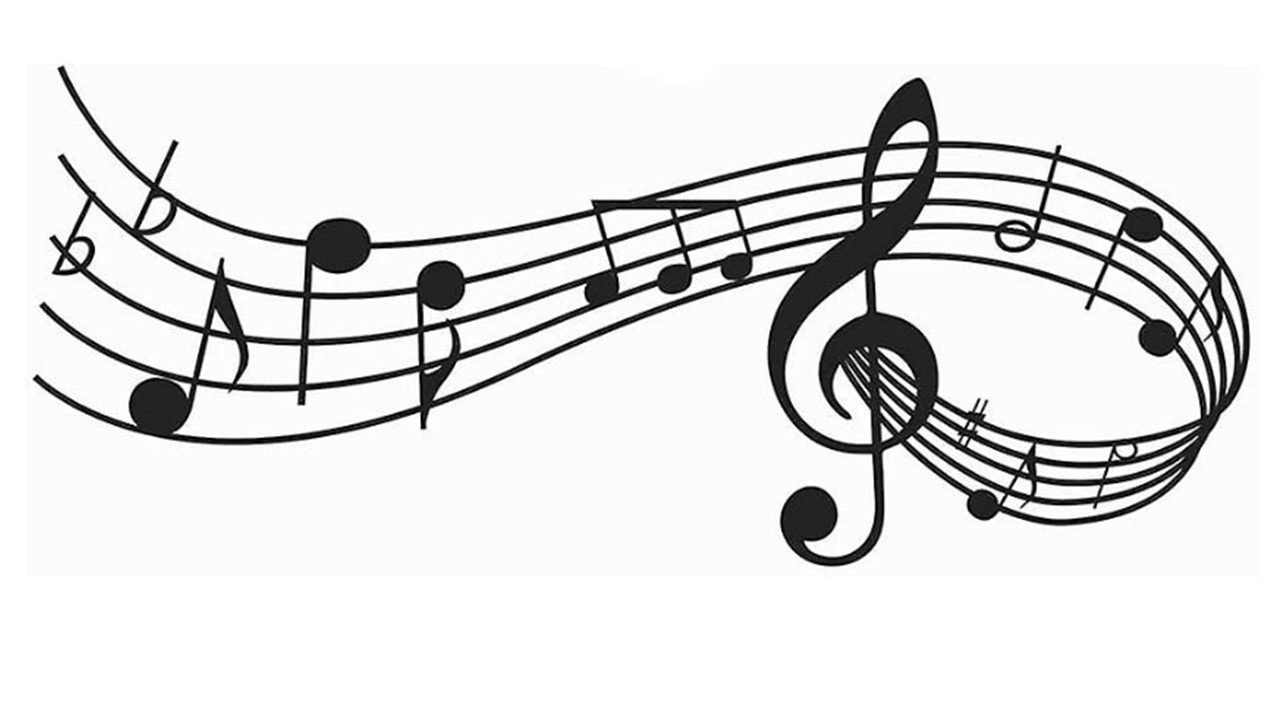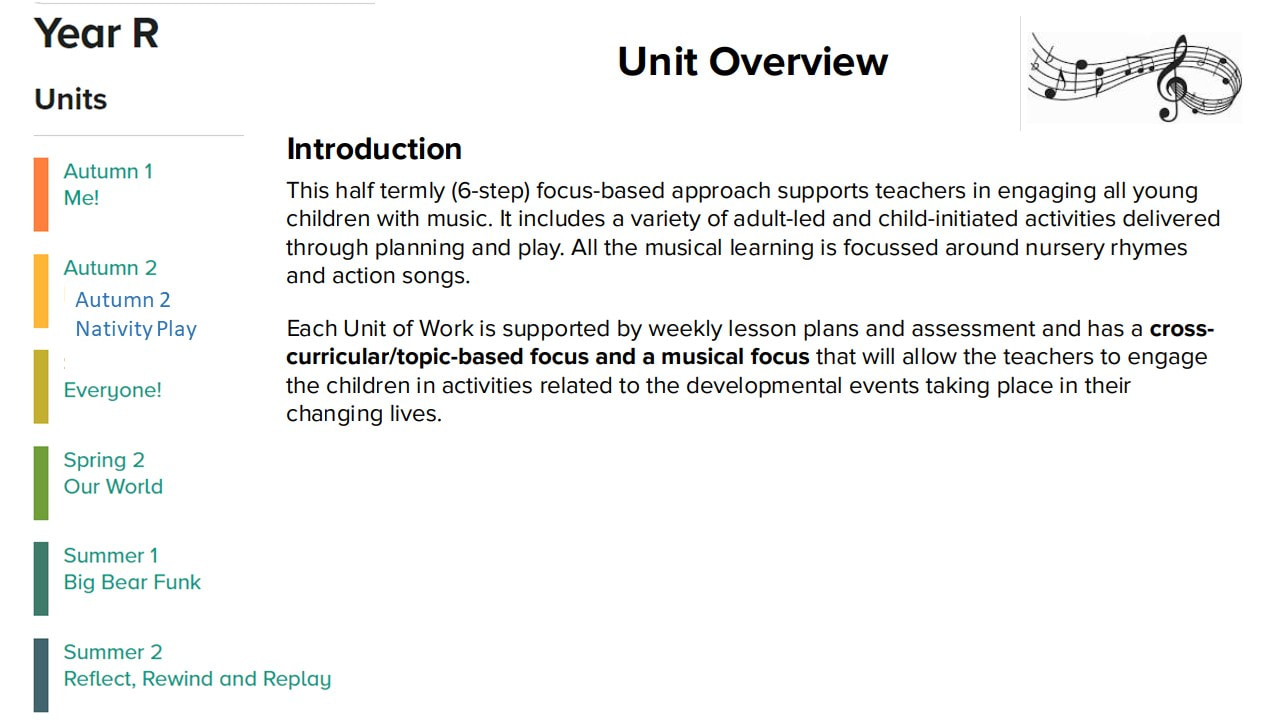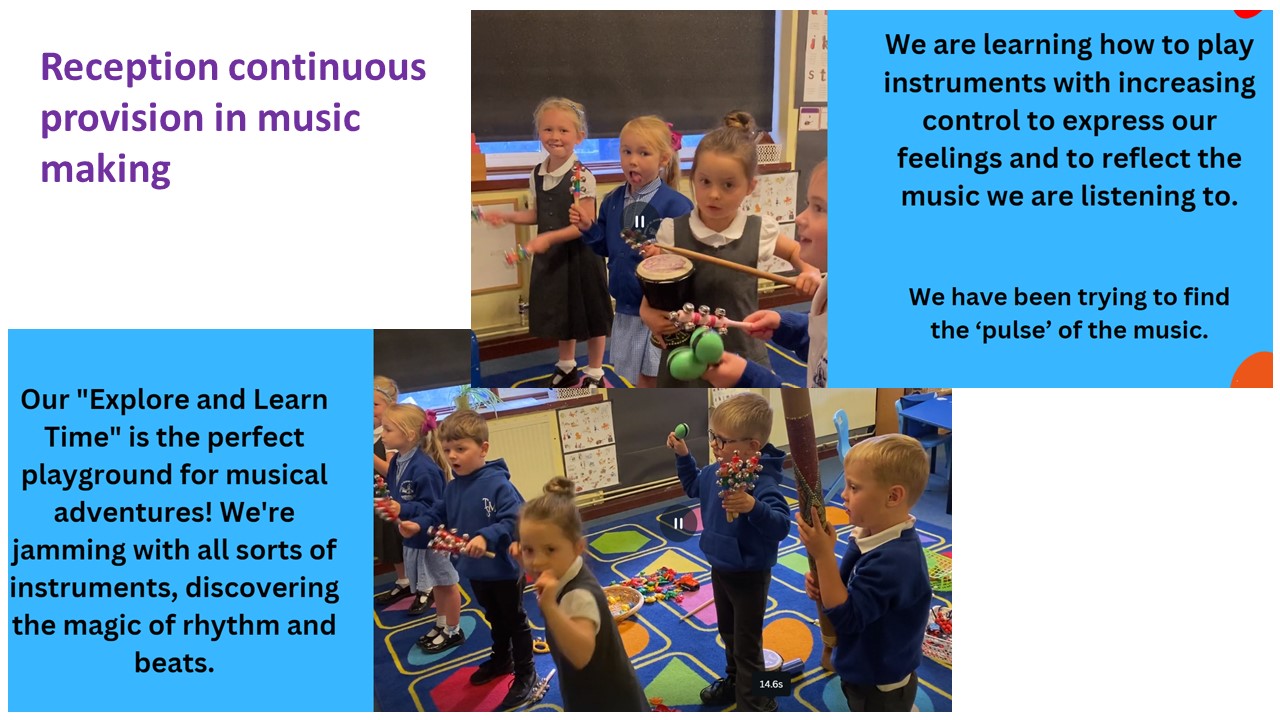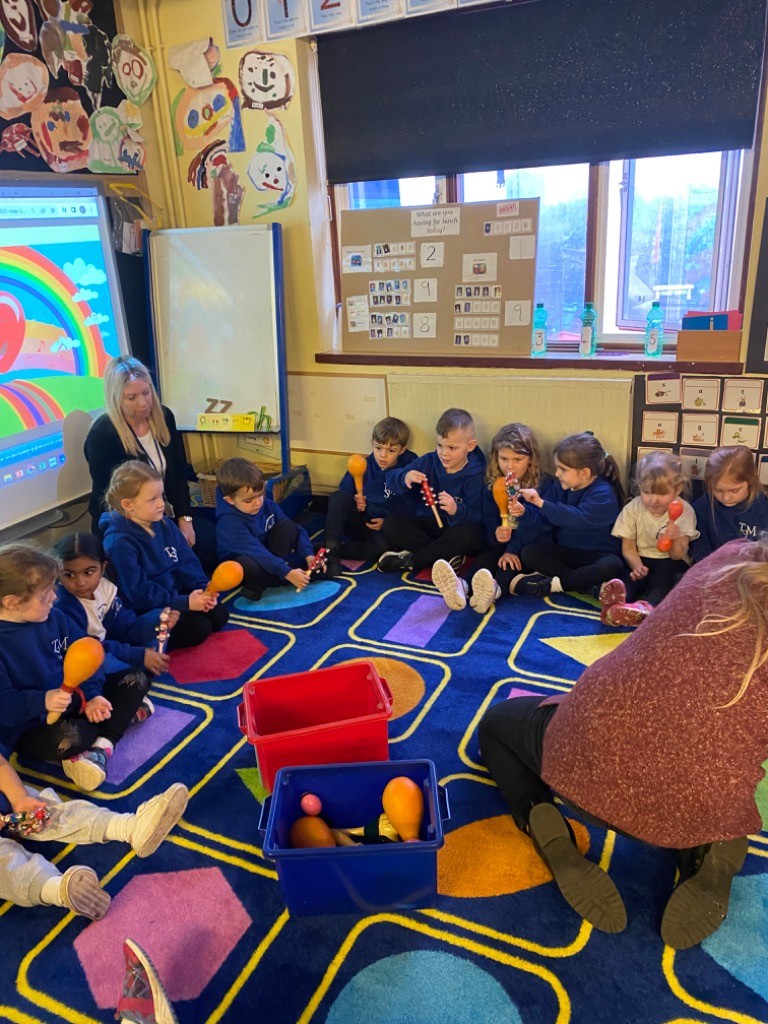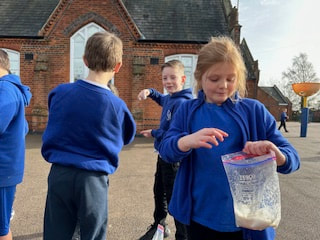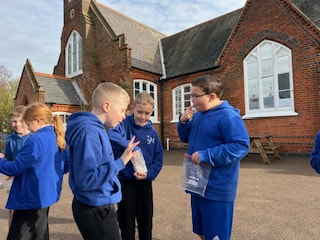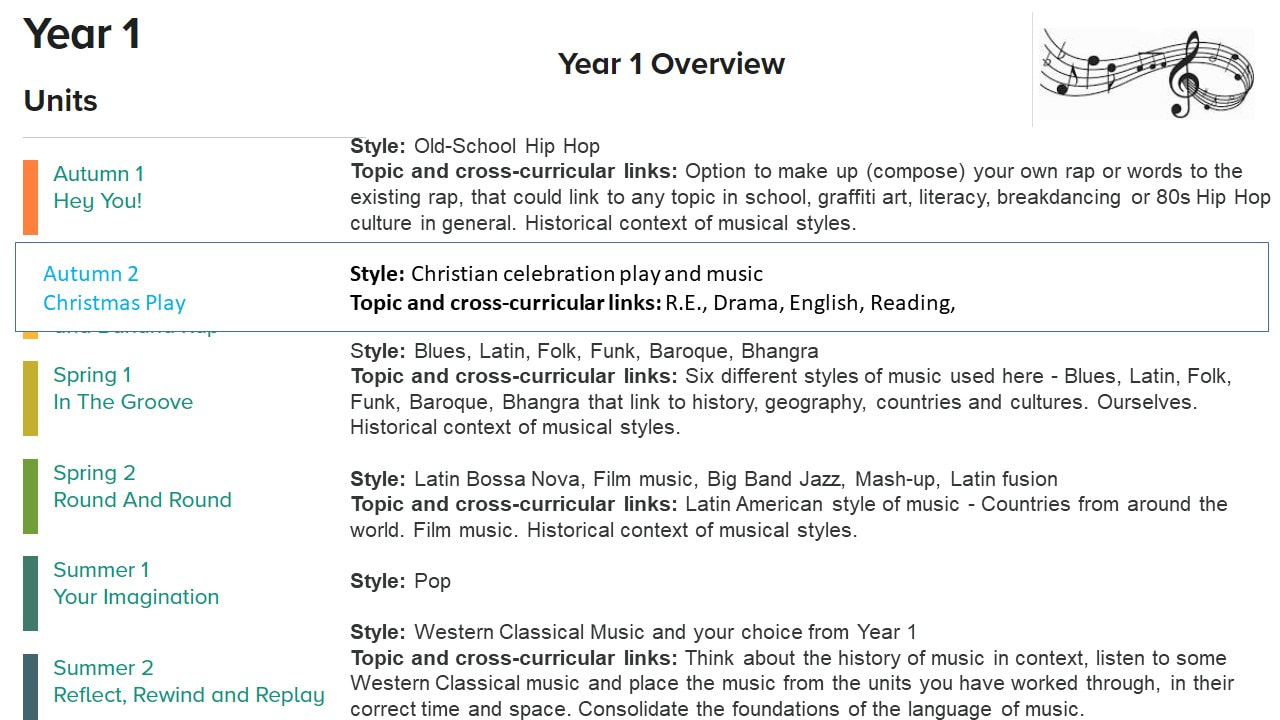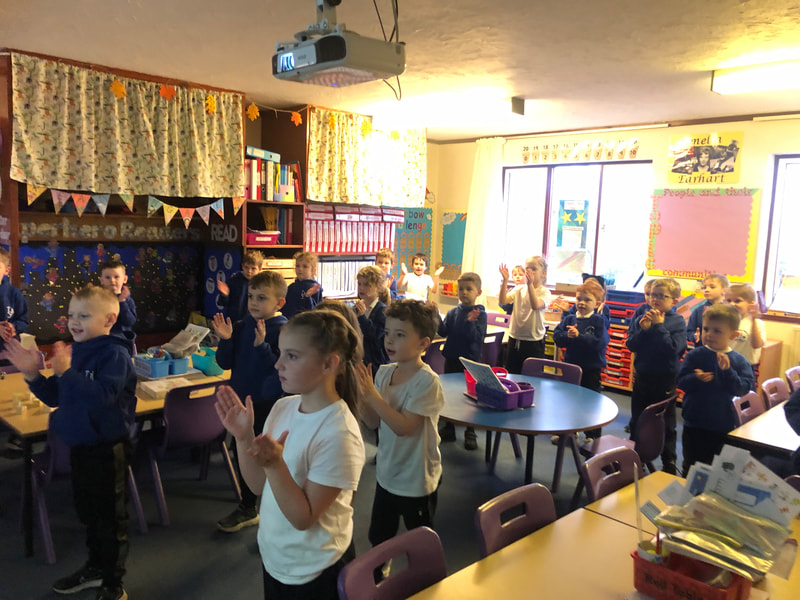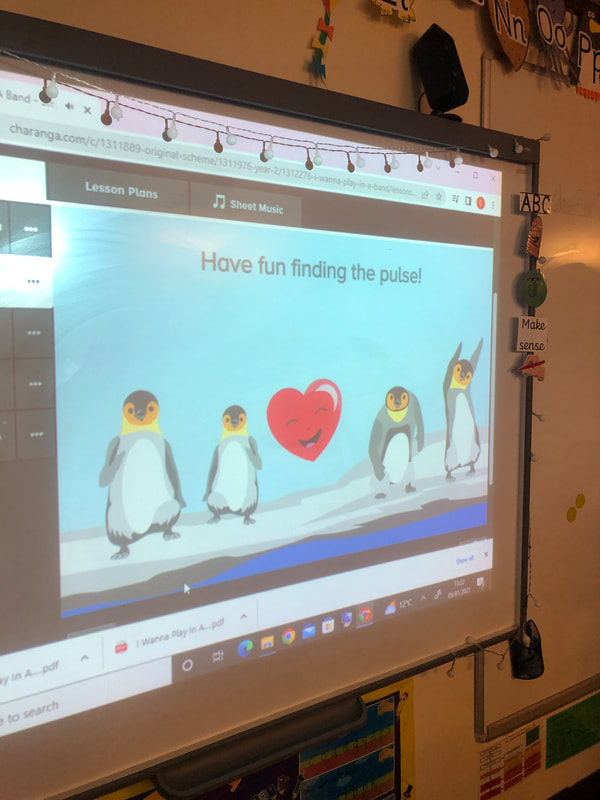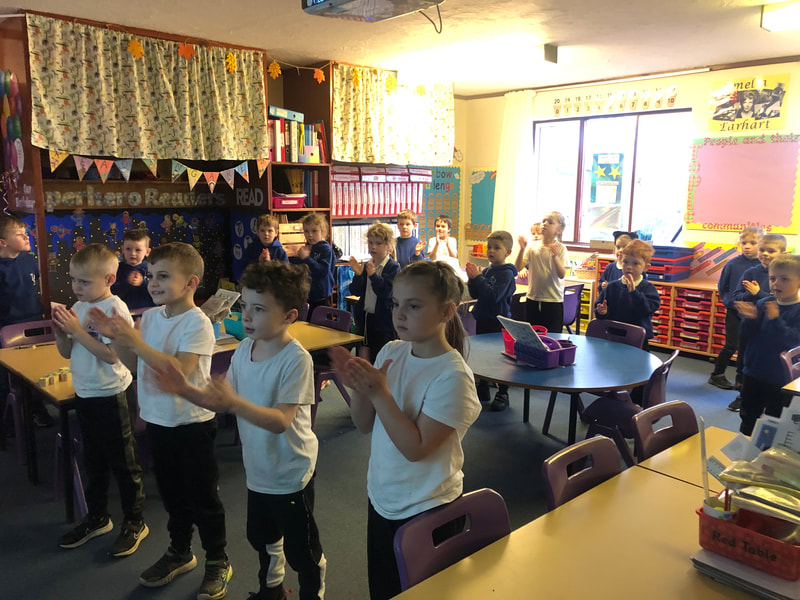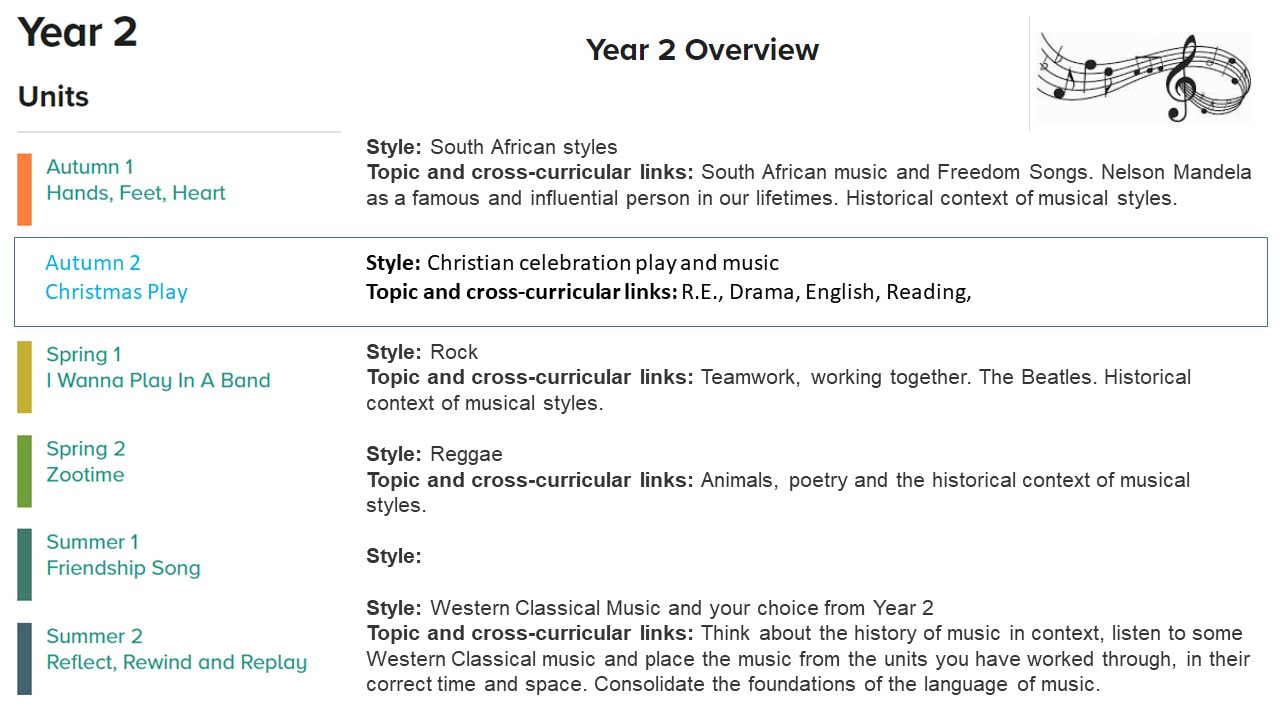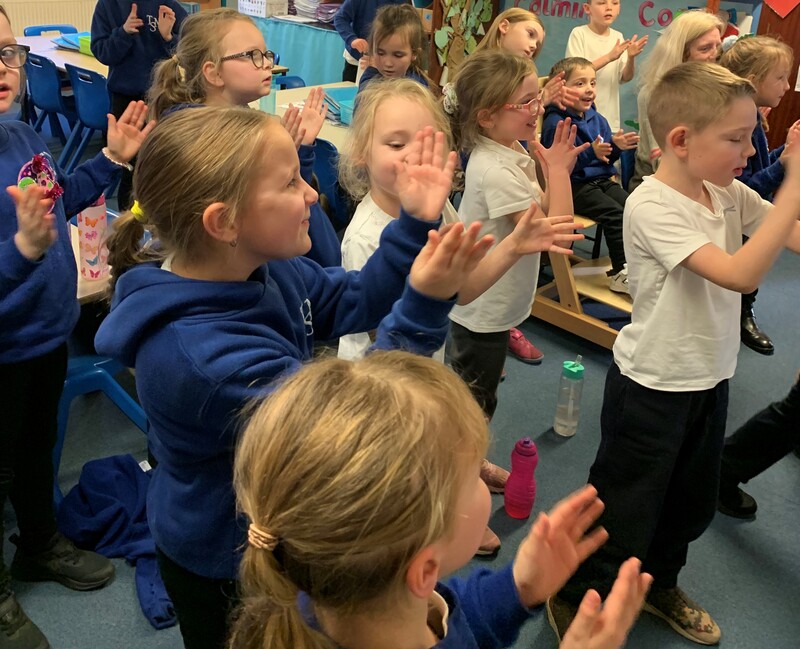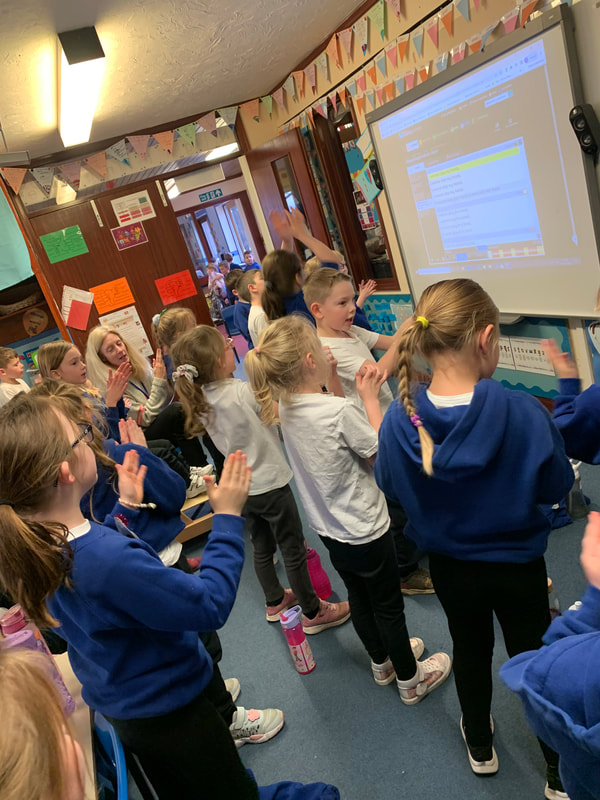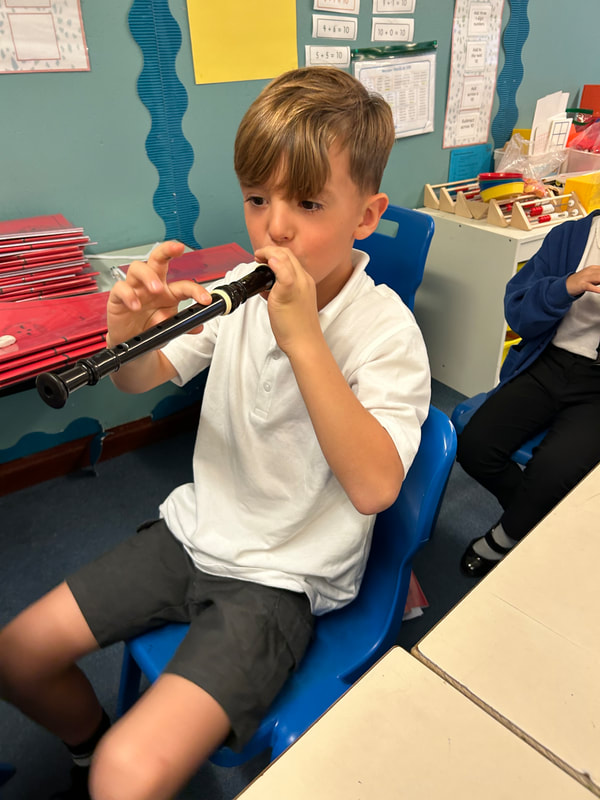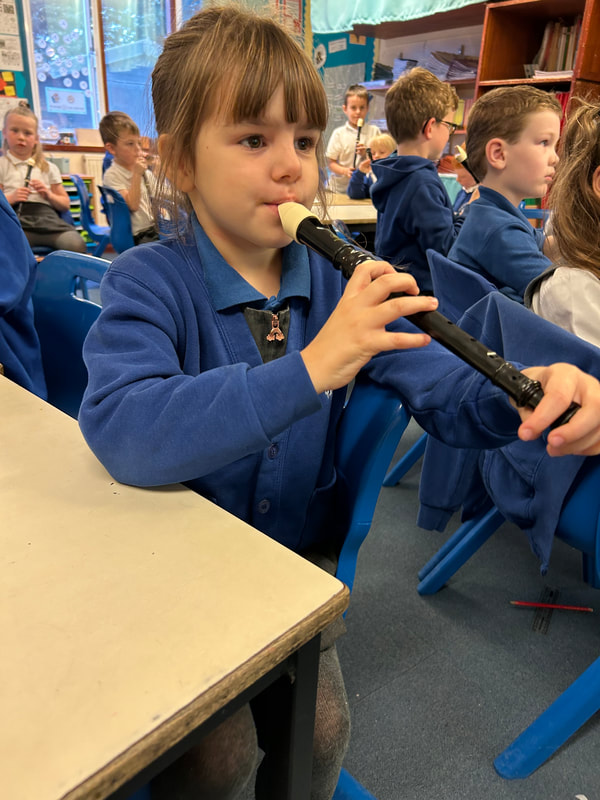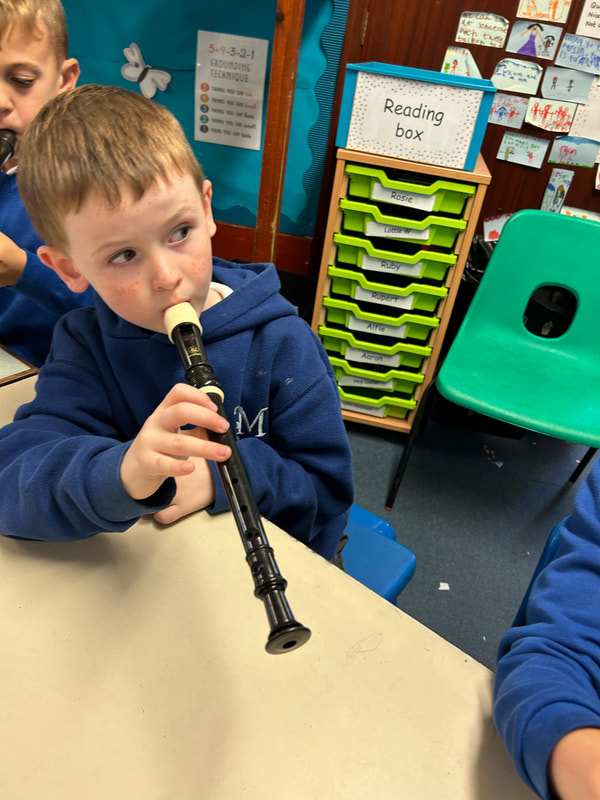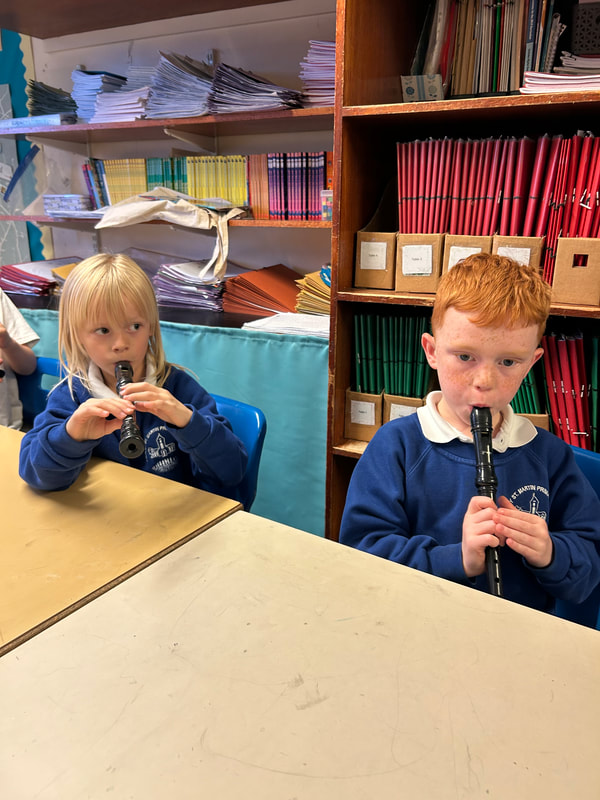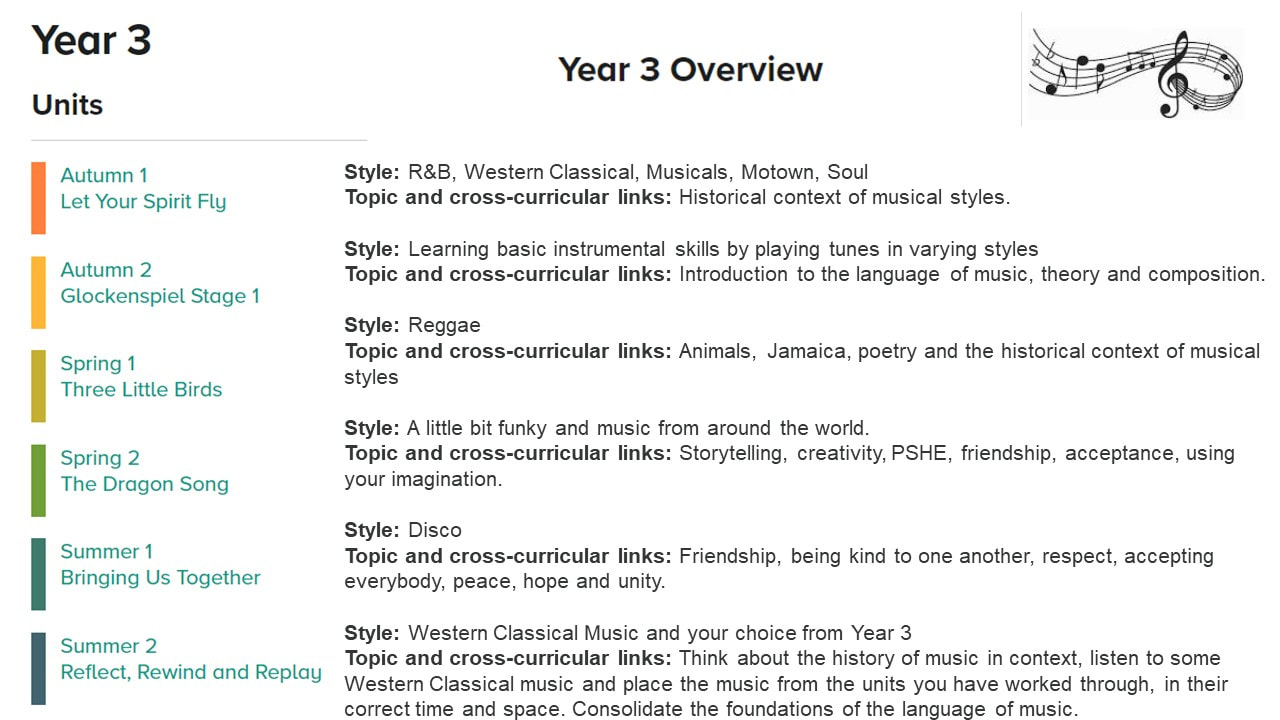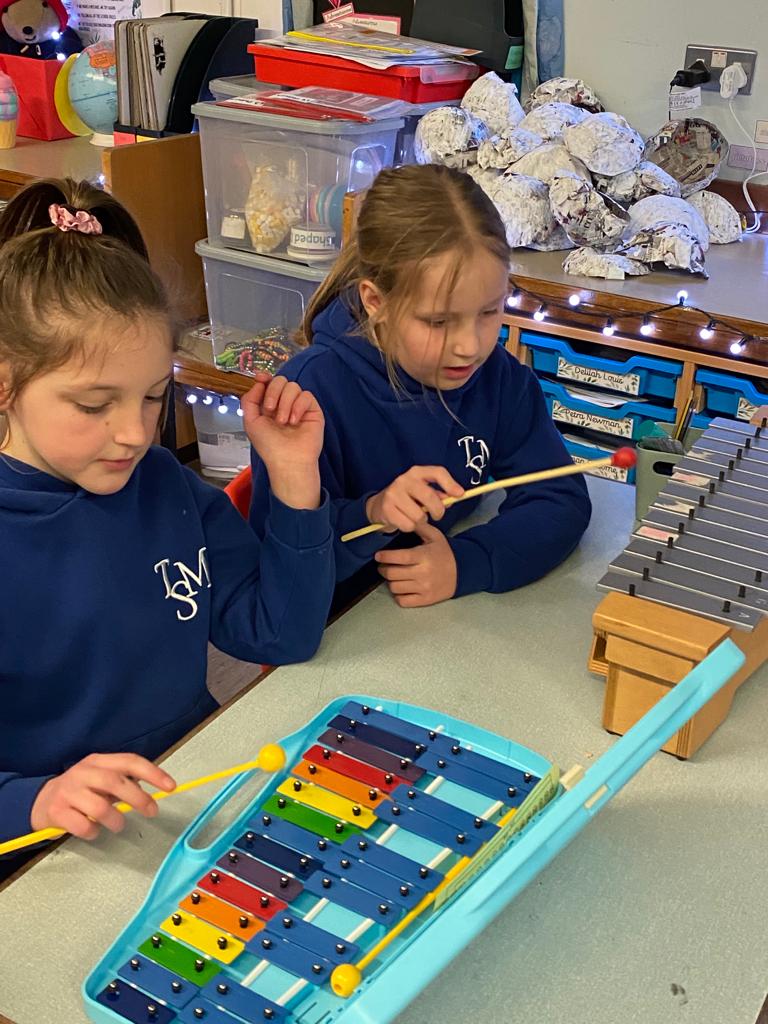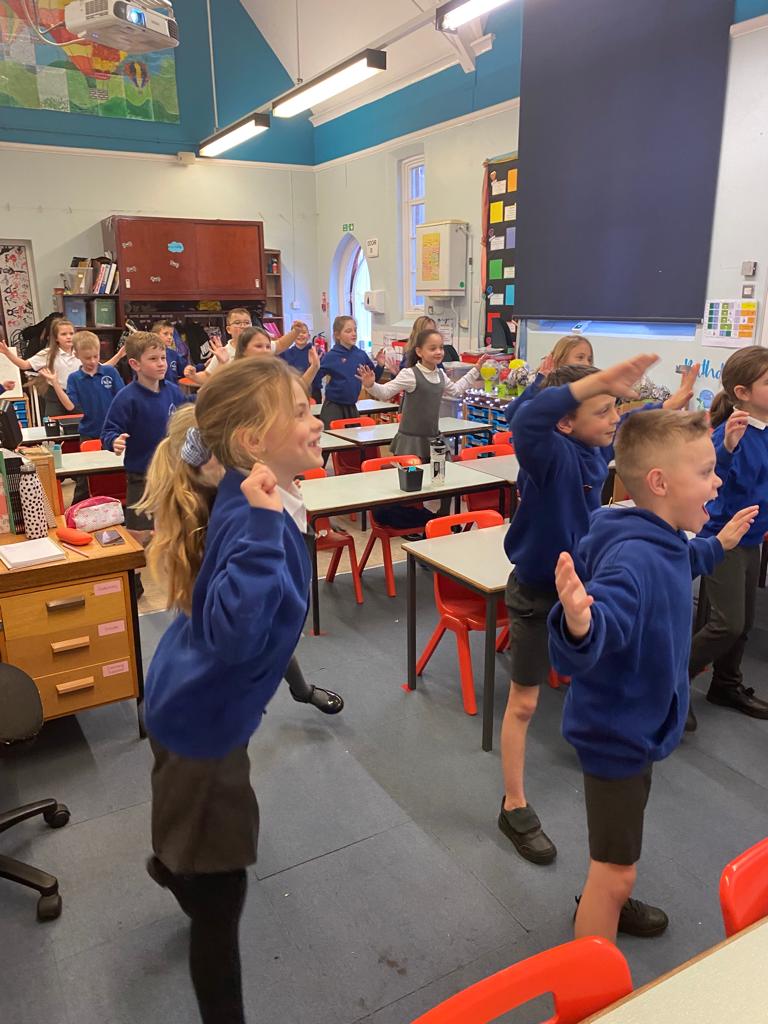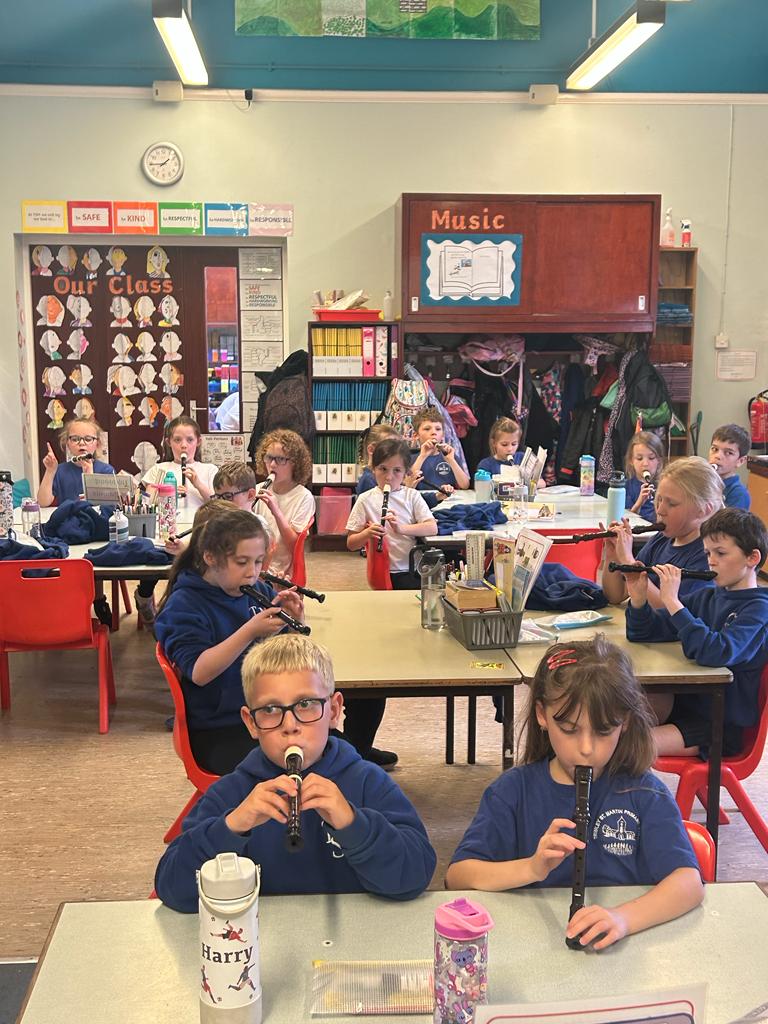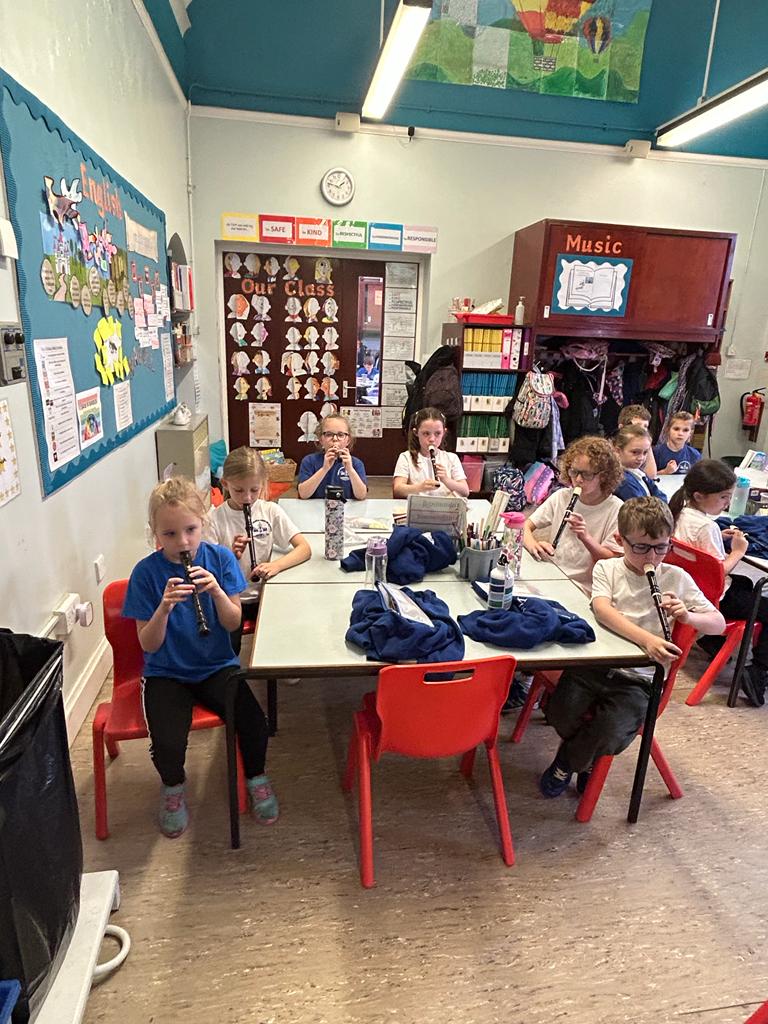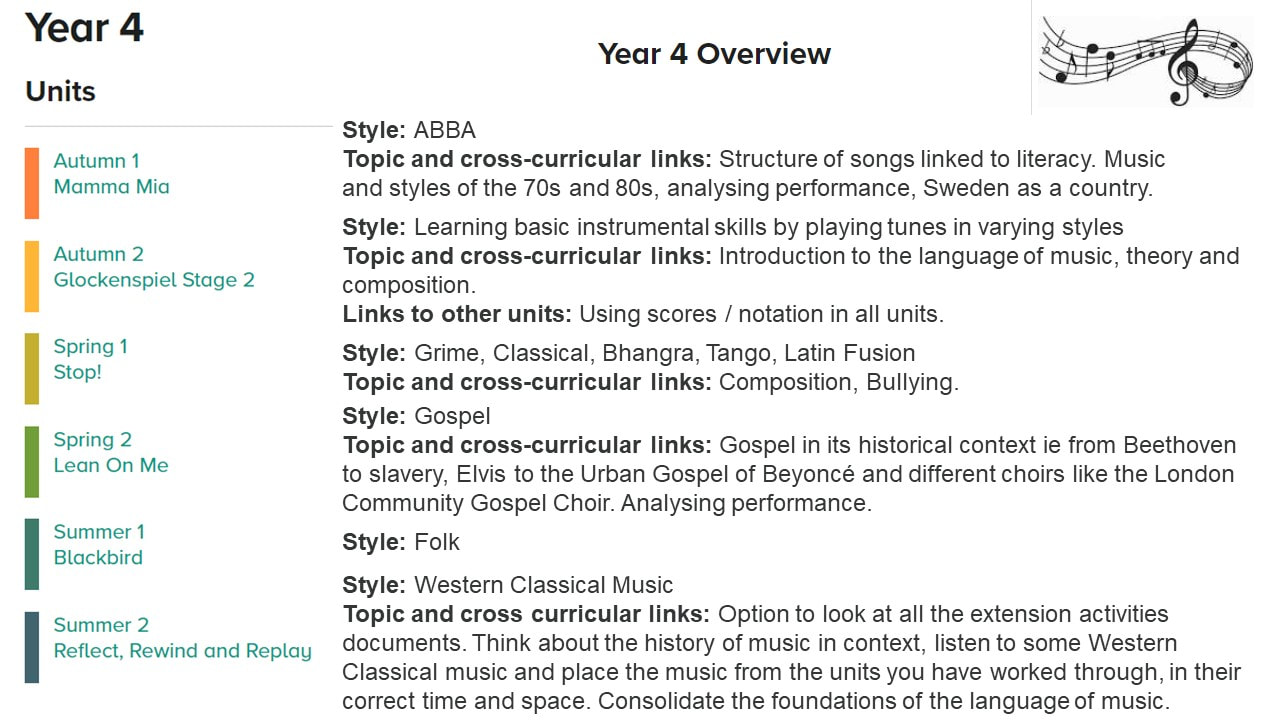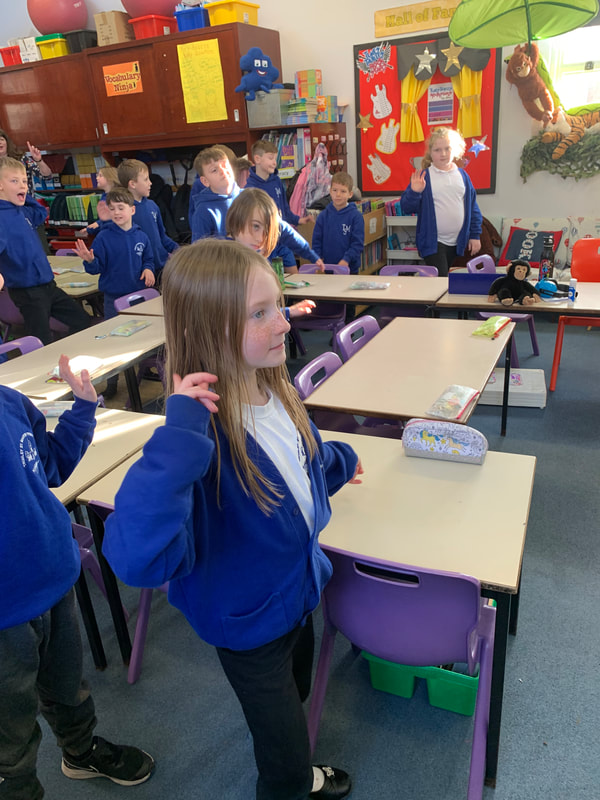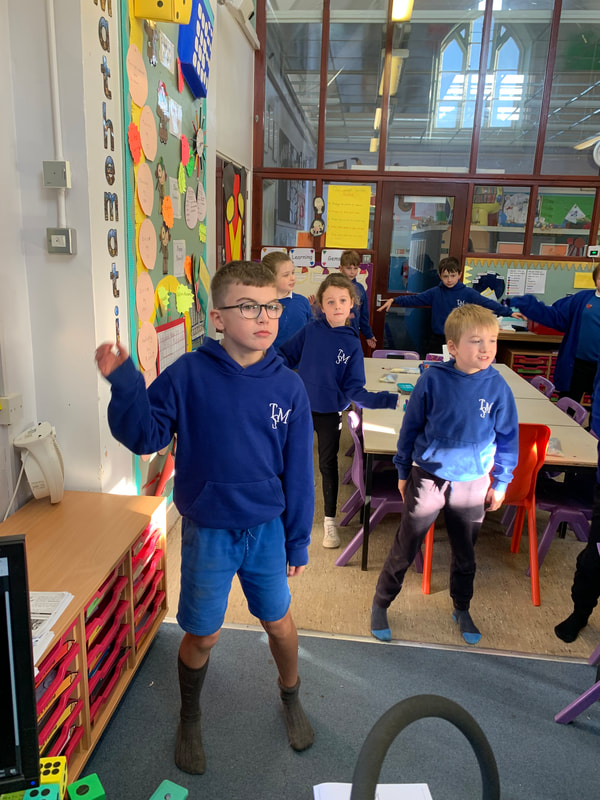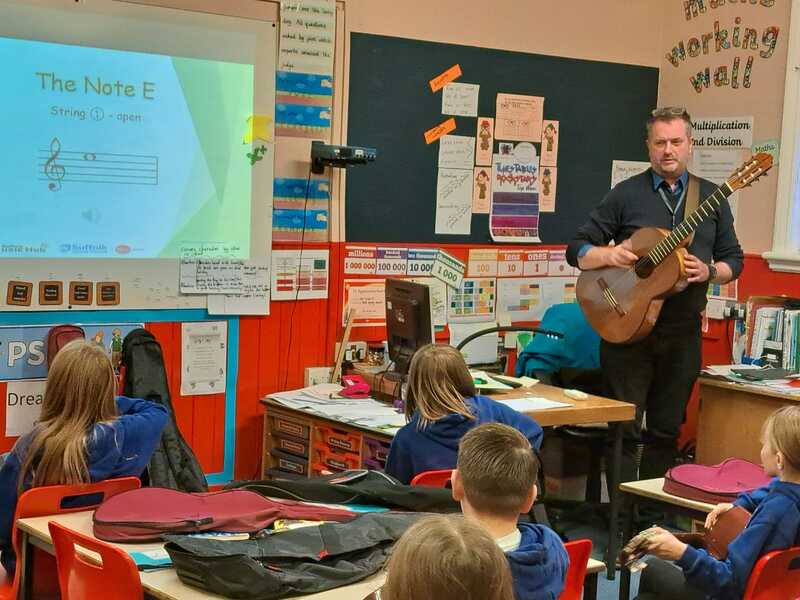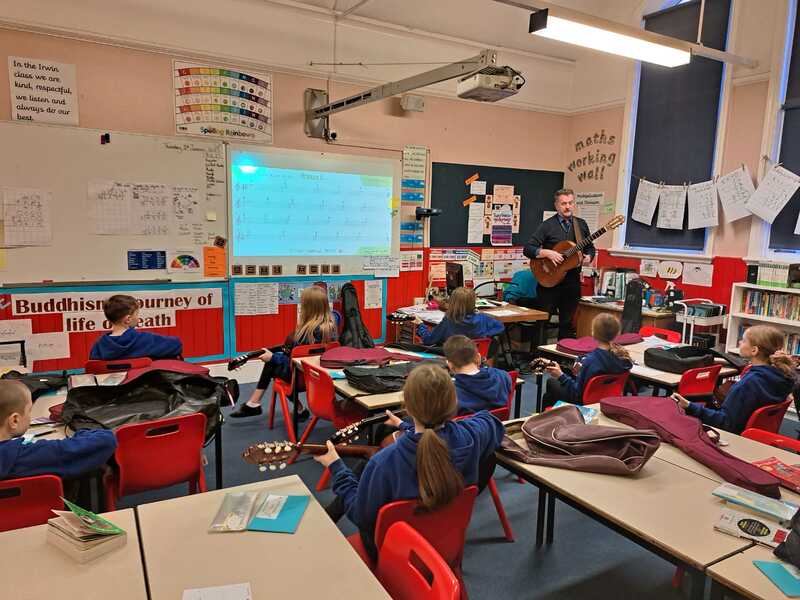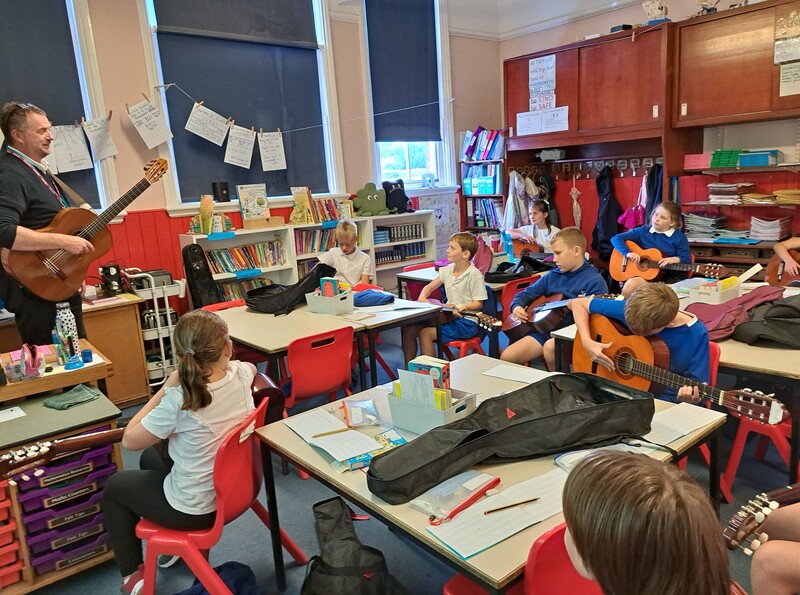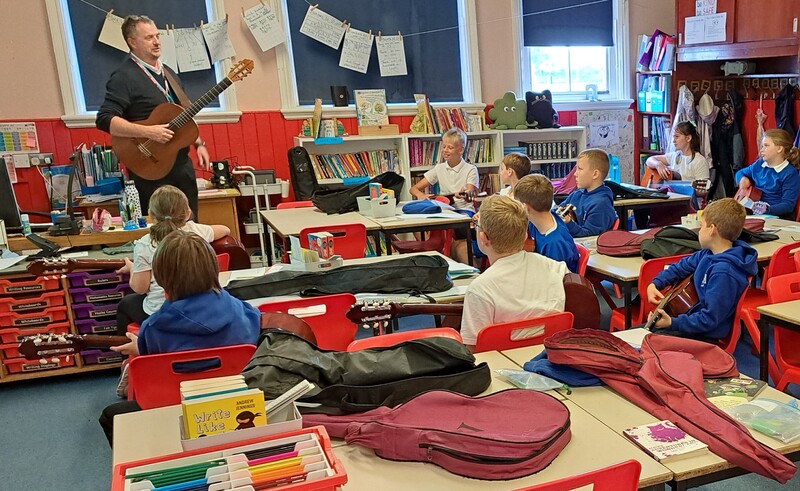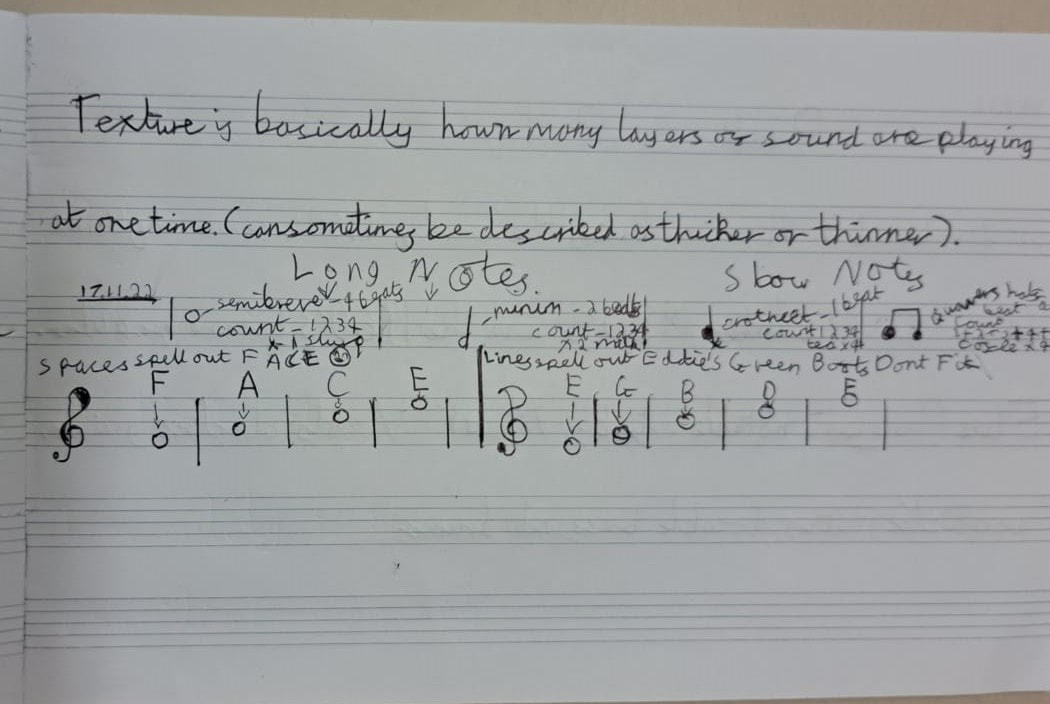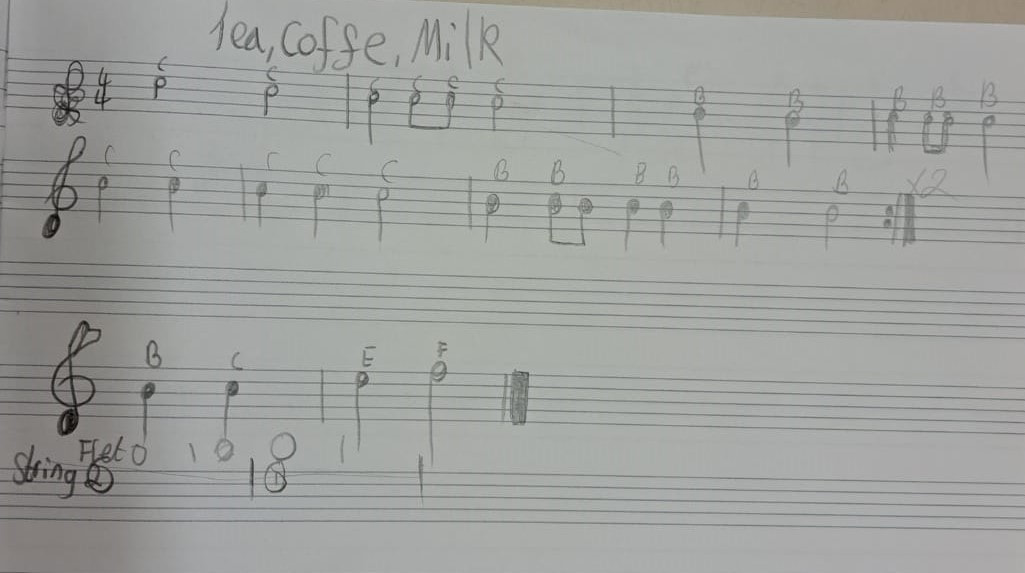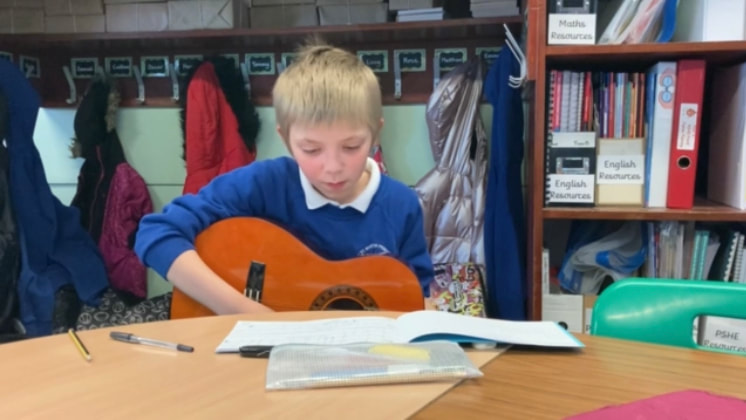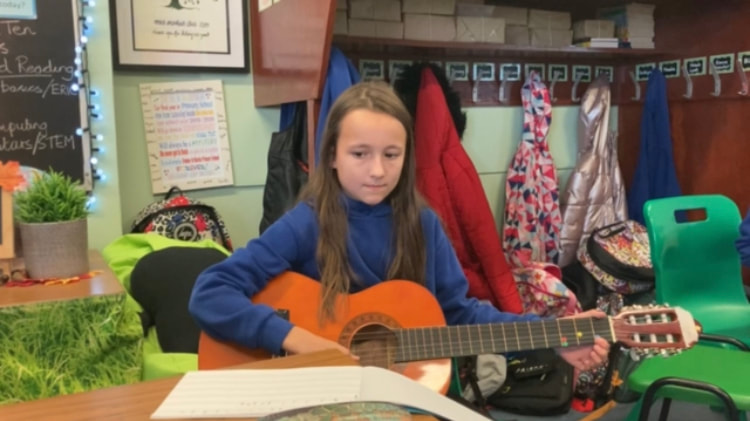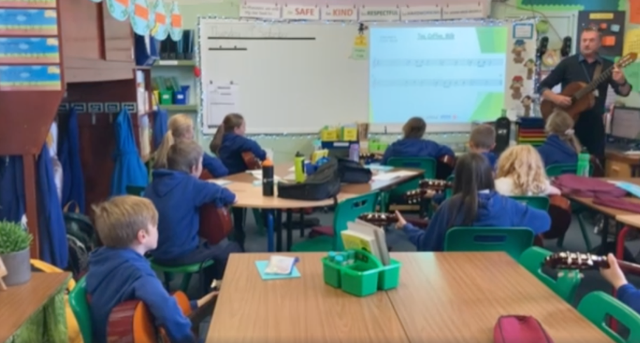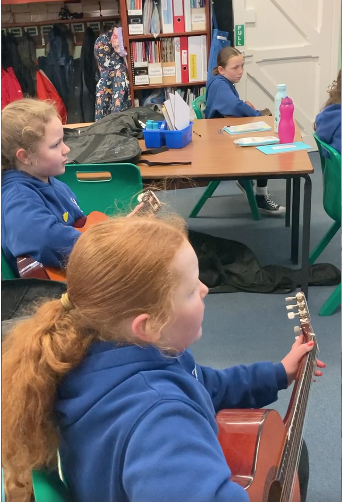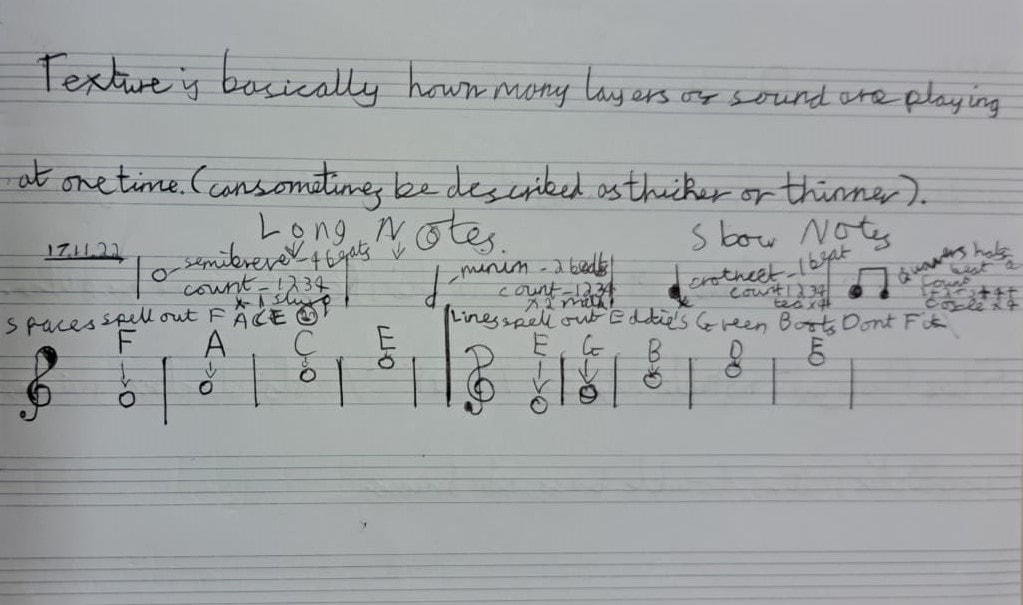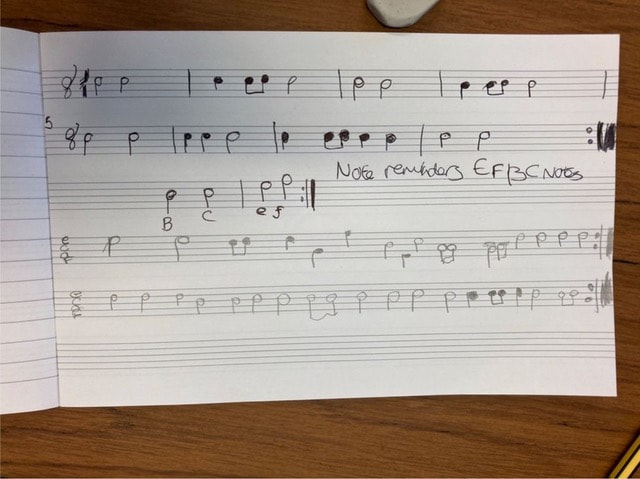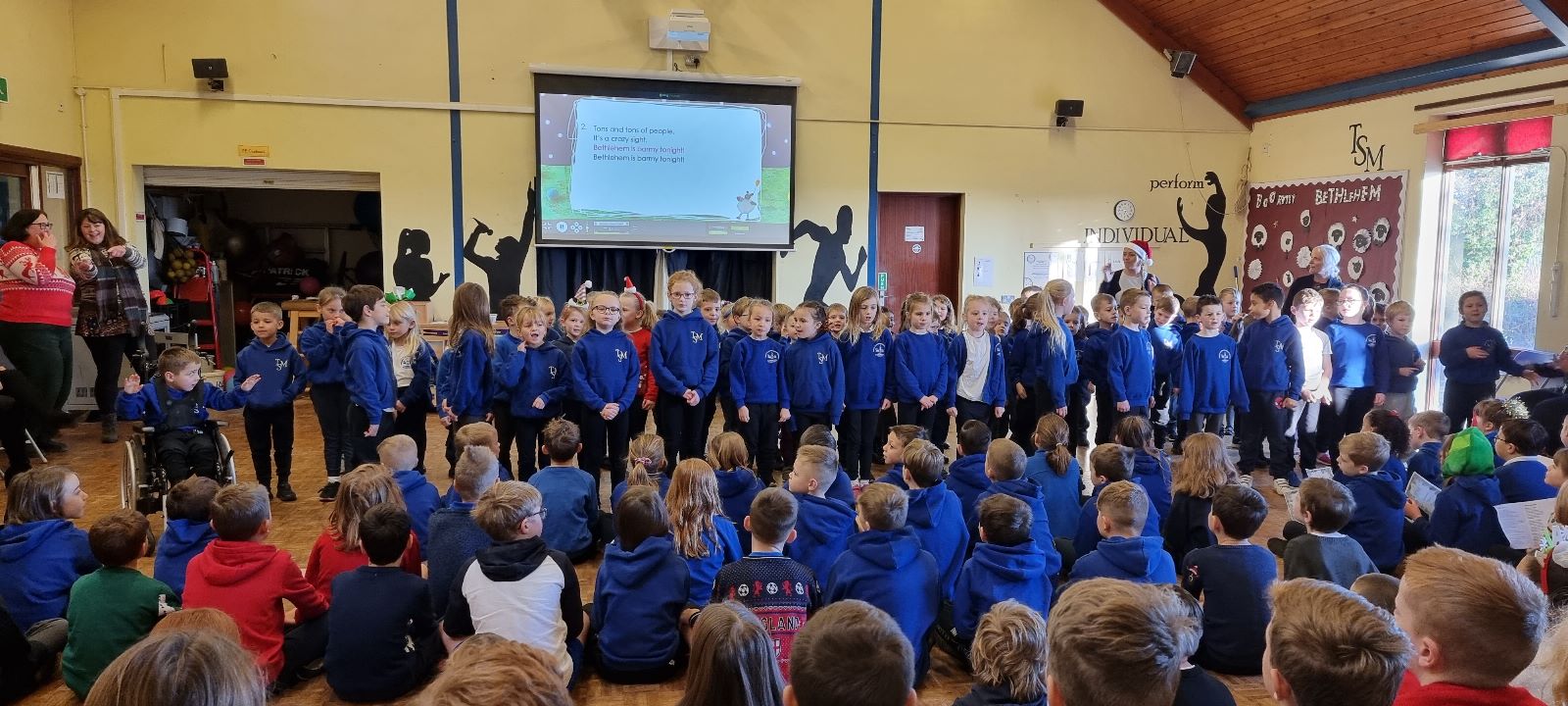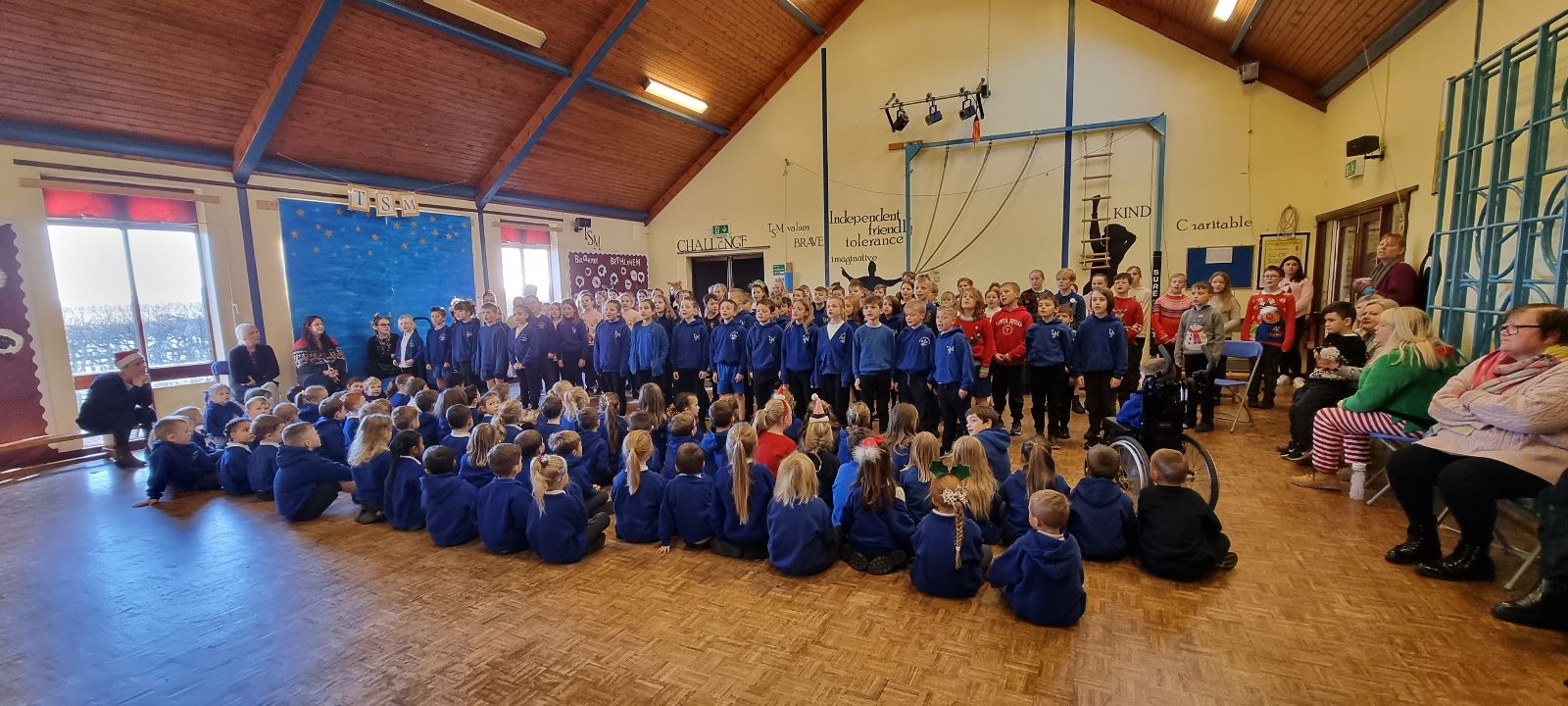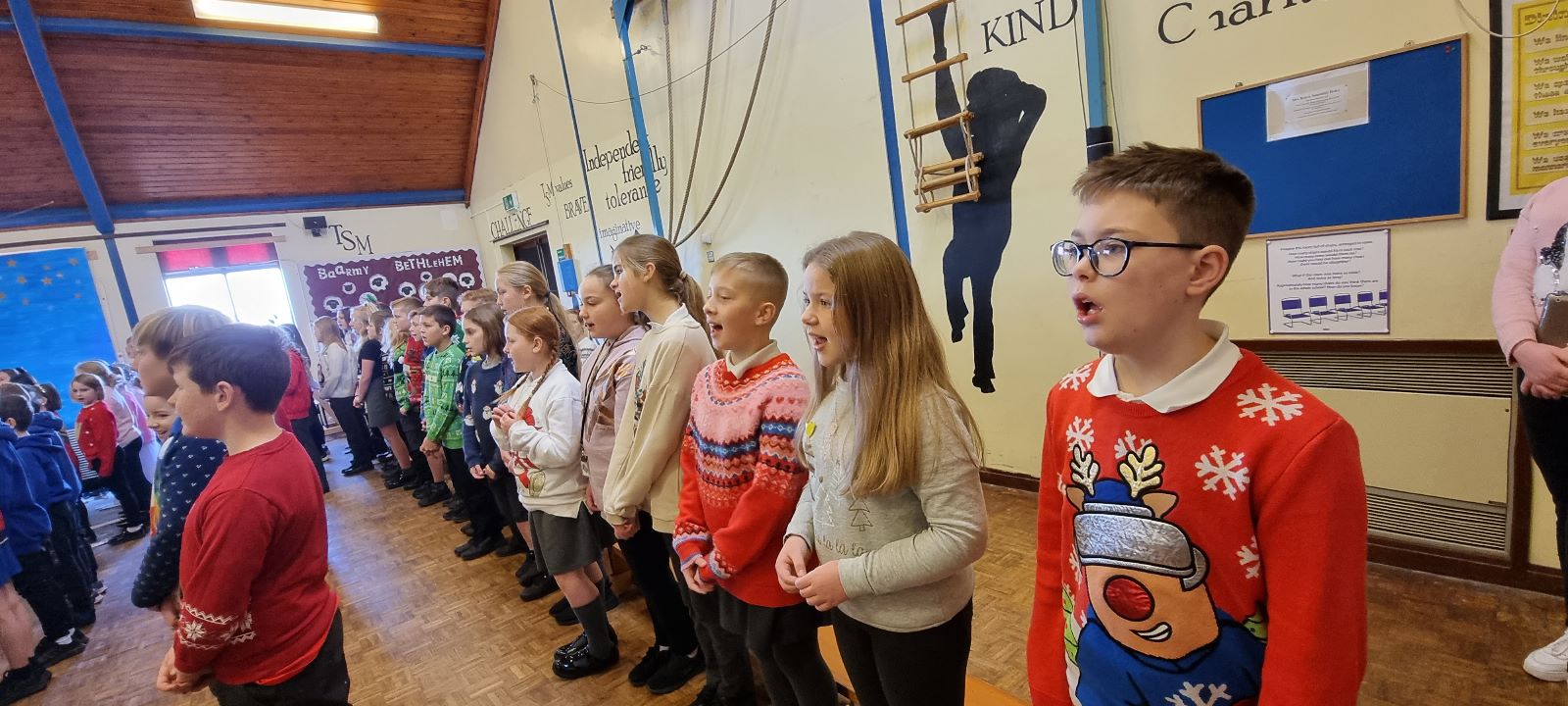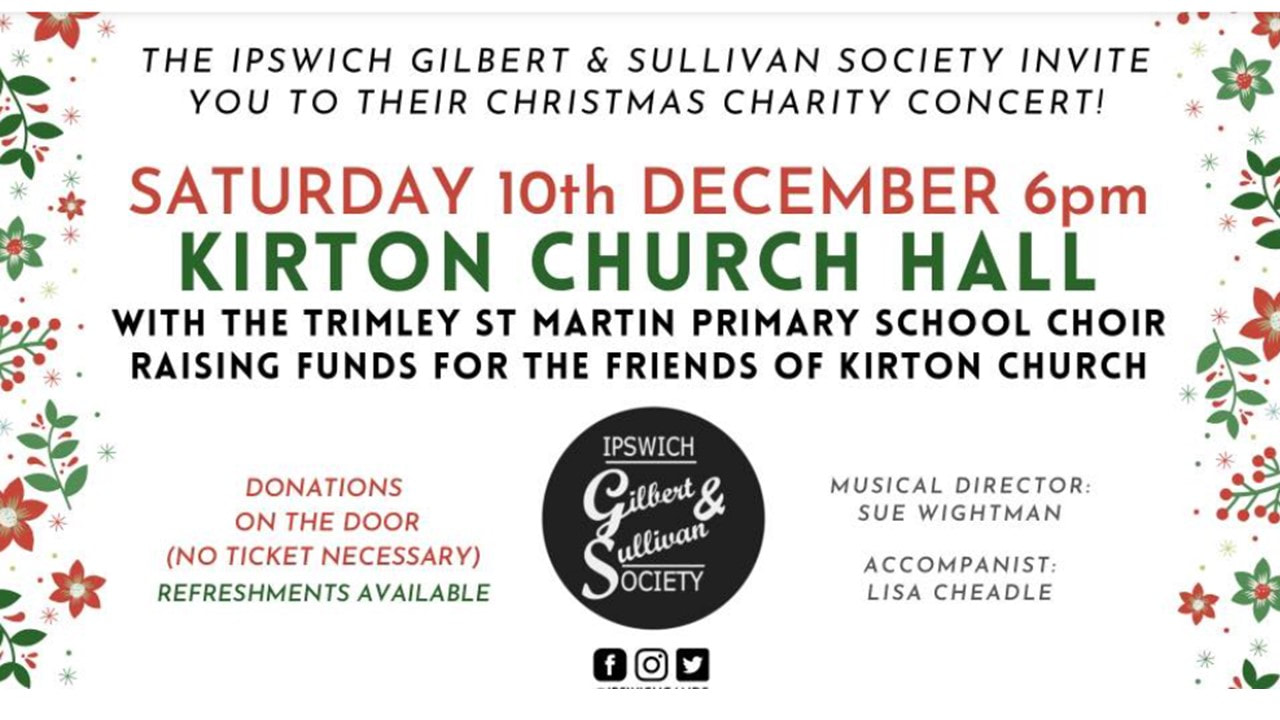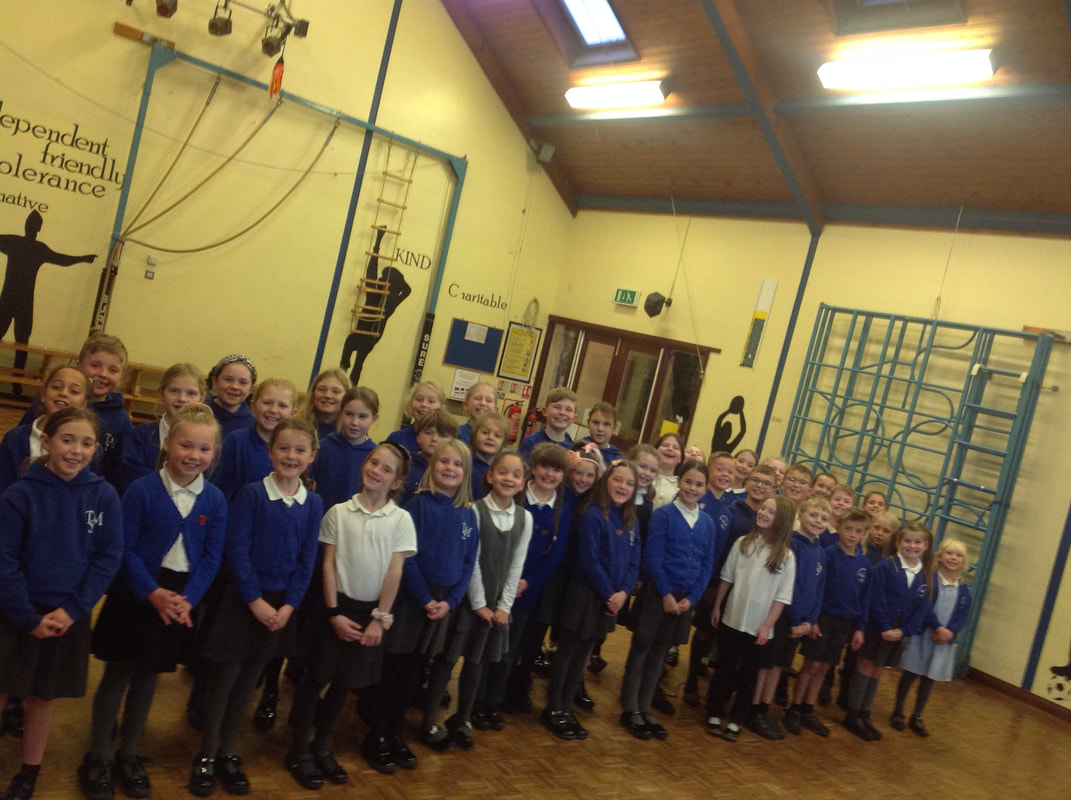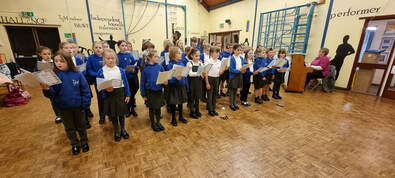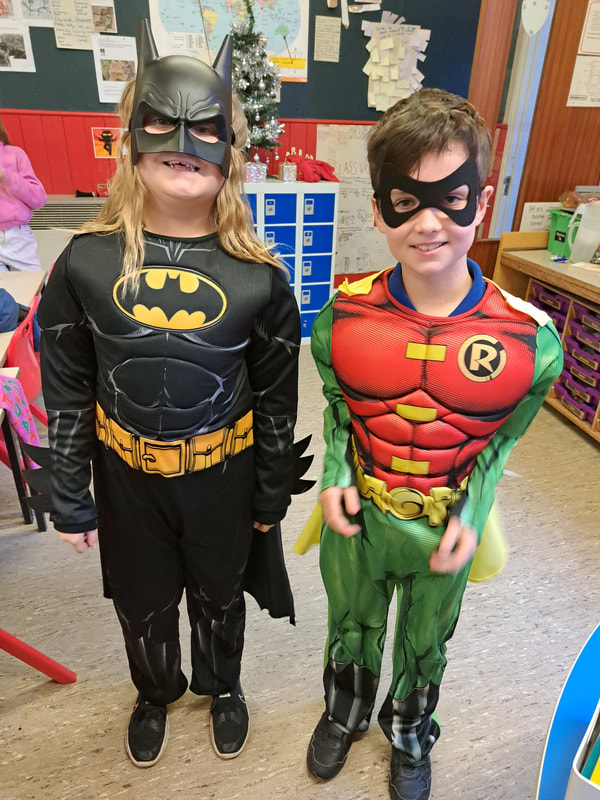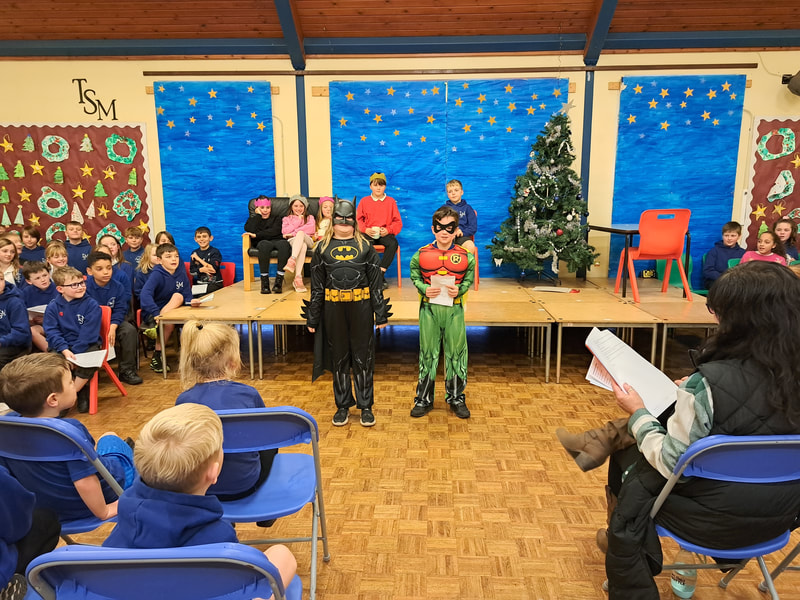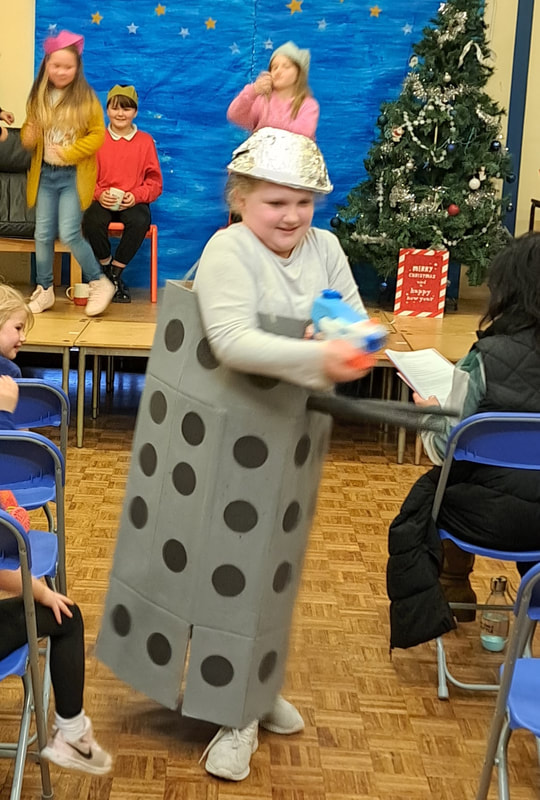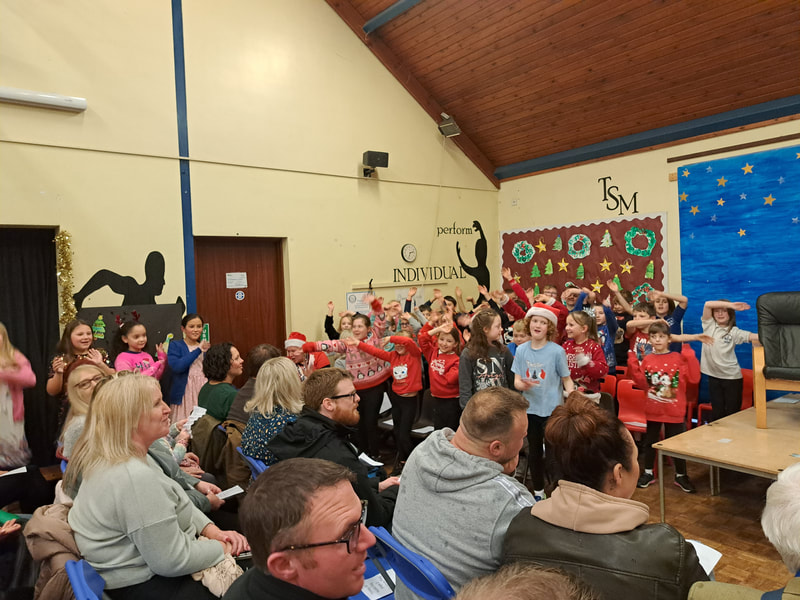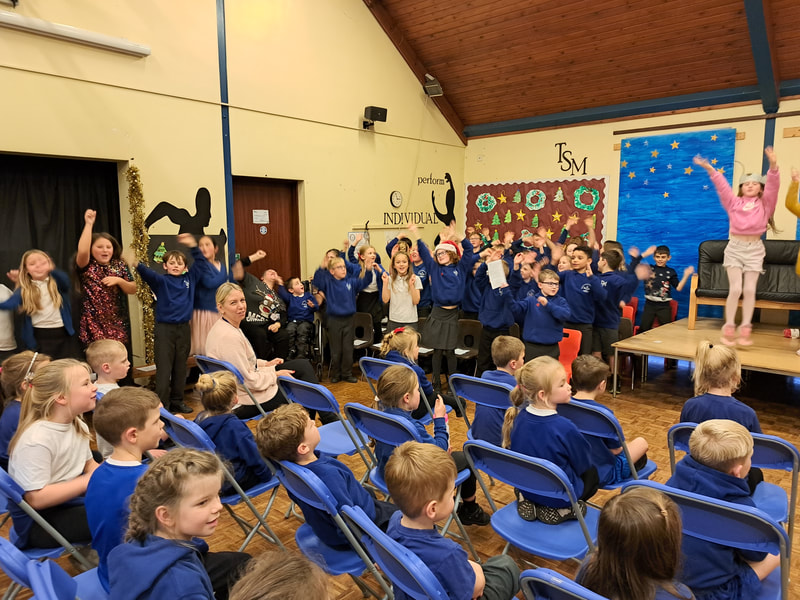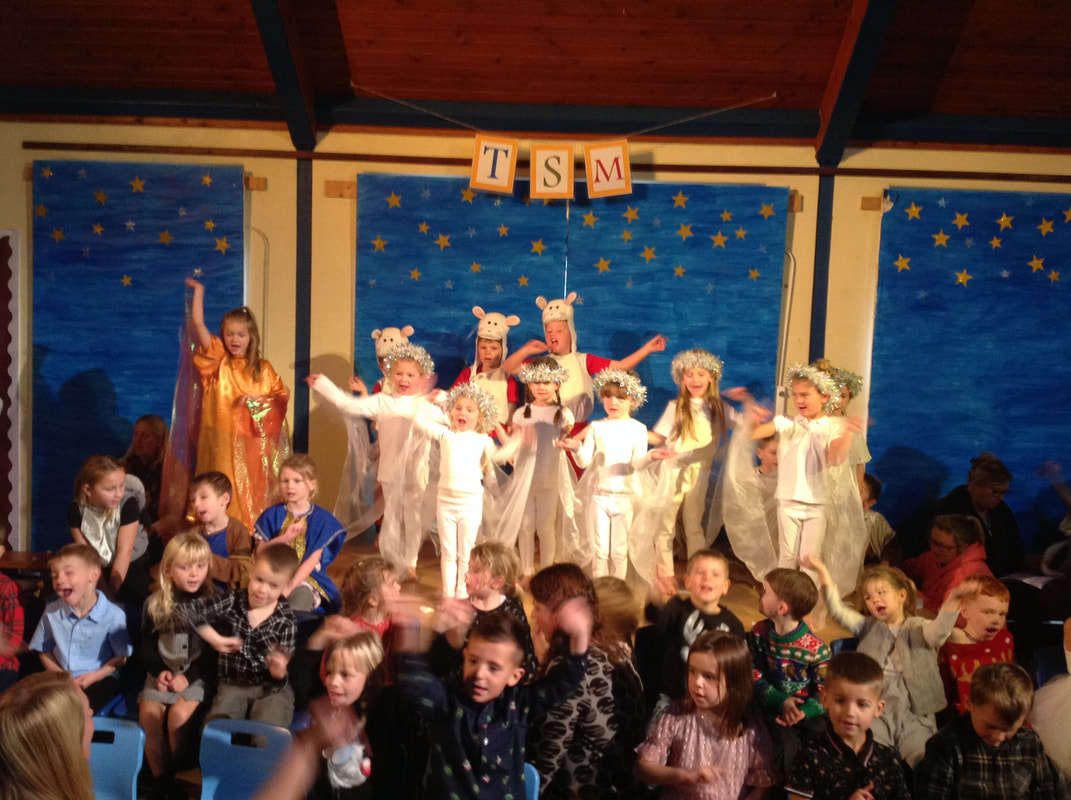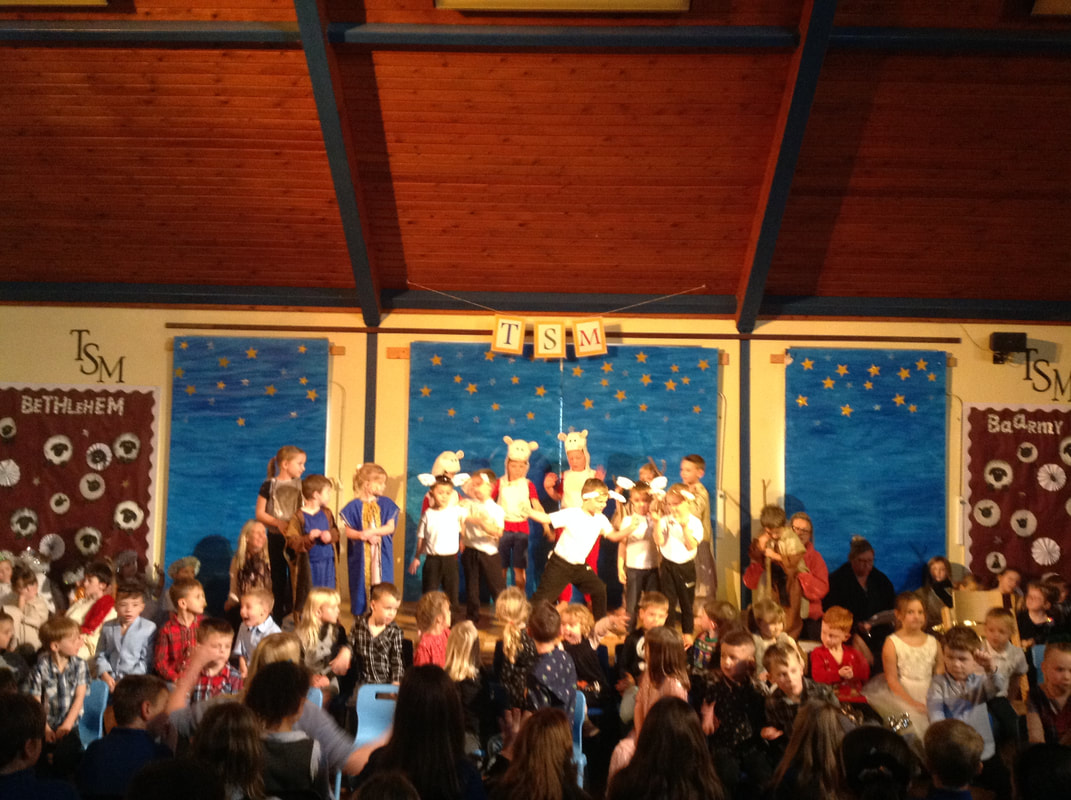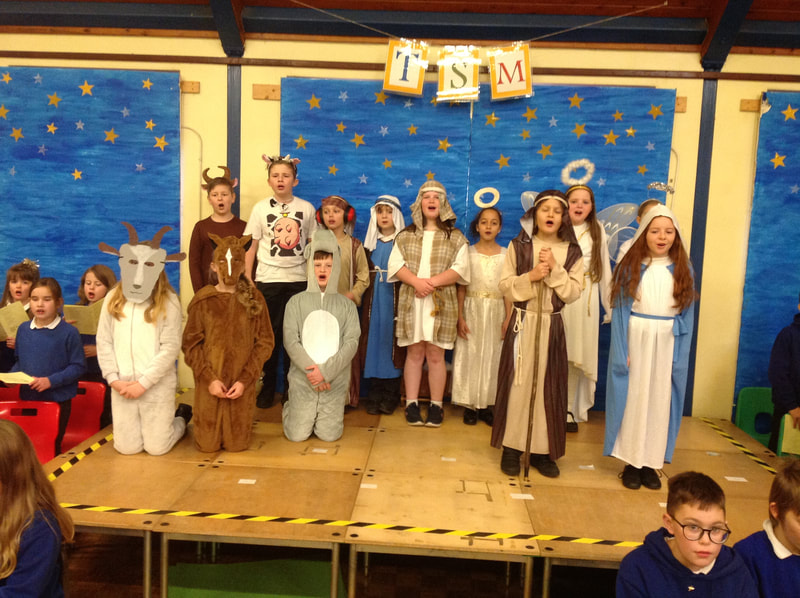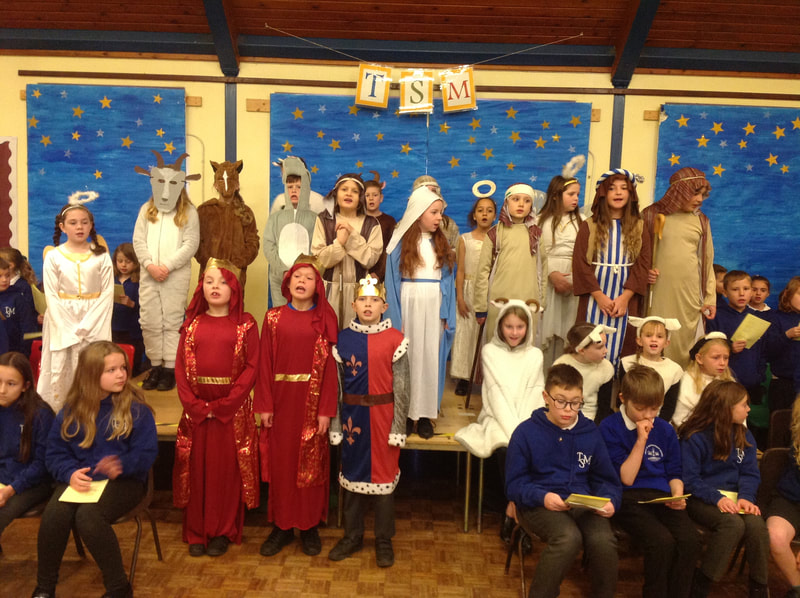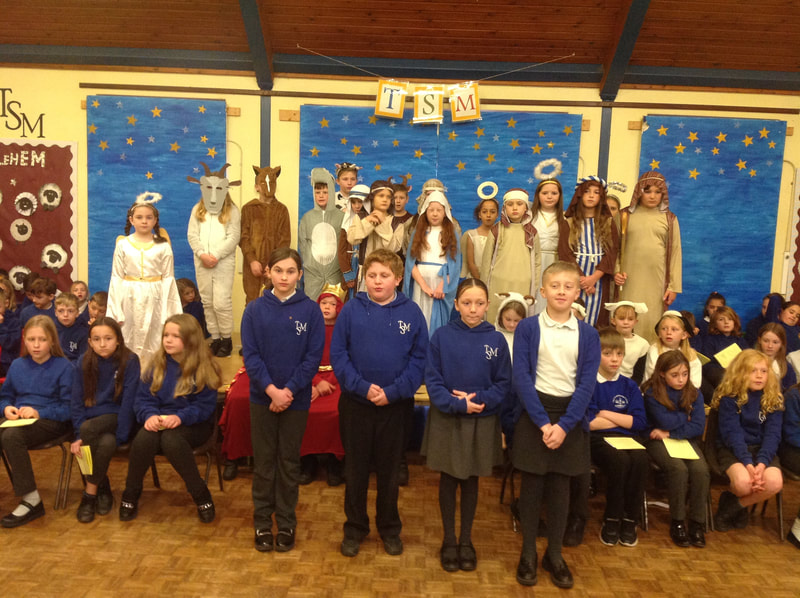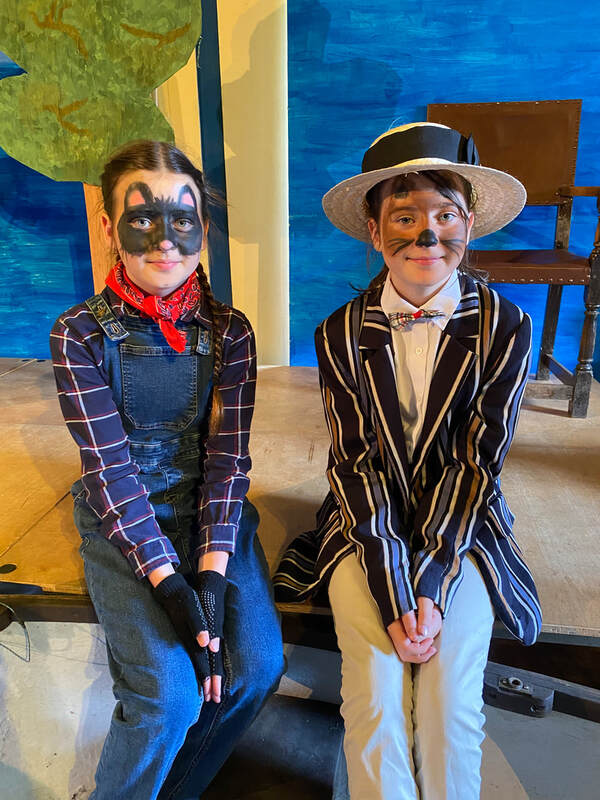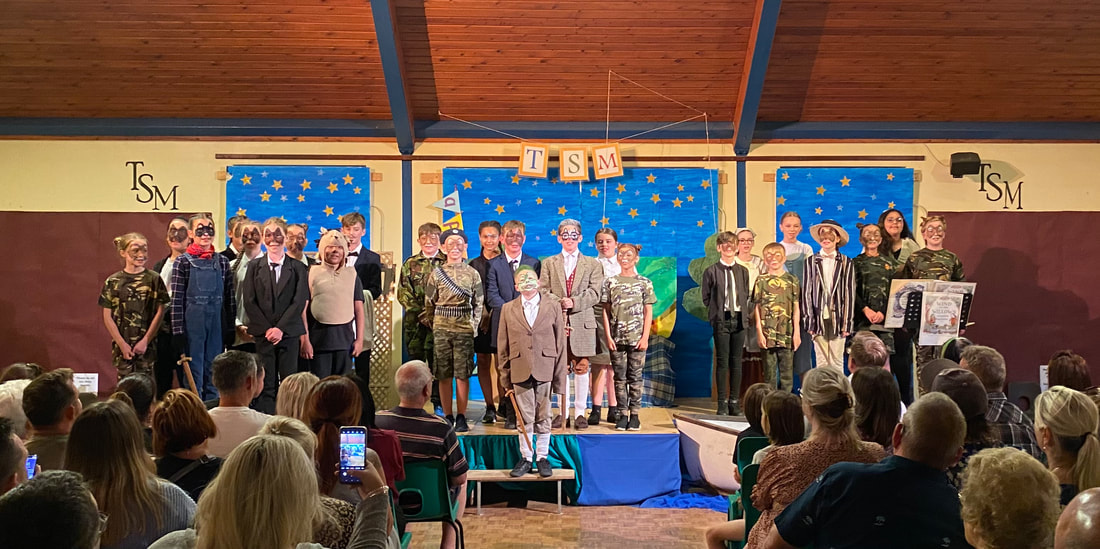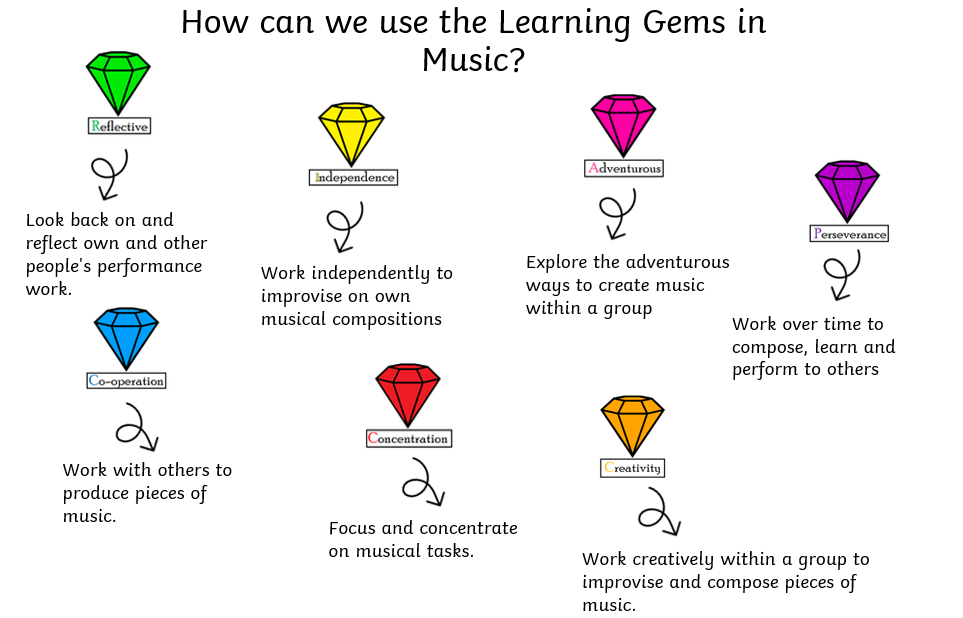Welcome to TSM's Music Page!
If you have any questions about music at TSM, please speak to Mrs Cockerill, our music lead.
|
We have the power to enable all children to have the opportunity to enjoy and take part in different styles of music.
We have the power to allow all our children to listen, play and perform a variety of music. We have the power to offer all our children the opportunity to learn to appreciate and make judgements about the music they are listening to. |
INTENT – Our Vision for Music
The aims of music teaching are:
How the Charanga scheme supports learning
The Charanga Musical School Scheme provides teachers with week-by-week lesson plans, assessment, clear progression, and engaging and exciting whiteboard resources to support every lesson. The Scheme supports all the requirements of the national curriculum.
In line with the curriculum for music and guidance from Ofsted, this Scheme moves away from the previous levels and learning objective/outcome concepts to an integrated, practical, exploratory and child-led approach to musical learning.
Ofsted have stated that “We will not always know the learning outcomes” so segregated learning objectives at the start of each lesson are not appropriate. Instead the interrelated dimensions of music weave through the units to encourage the development of musical skills as the learning progresses through listening and appraising, differing musical activities (including creating and exploring) and performing.
How the Charanga Scheme is structured
Each Unit of Work comprises the of strands of musical learning which correspond with the national curriculum for music:
- Enjoy and appreciate a variety of music styles and genres
- Enable children to gain a wide experience of music both in making music (with body sounds, instruments and voices) and in listening to it
- Develop social skills in work cooperatively together through a variety of musical activities
- Help children to gain an understanding of music within our culture and that of others cultures
- Explore and understand how music is created
- Learn to sing and use our voices
- Use technology appropriately
How the Charanga scheme supports learning
The Charanga Musical School Scheme provides teachers with week-by-week lesson plans, assessment, clear progression, and engaging and exciting whiteboard resources to support every lesson. The Scheme supports all the requirements of the national curriculum.
In line with the curriculum for music and guidance from Ofsted, this Scheme moves away from the previous levels and learning objective/outcome concepts to an integrated, practical, exploratory and child-led approach to musical learning.
Ofsted have stated that “We will not always know the learning outcomes” so segregated learning objectives at the start of each lesson are not appropriate. Instead the interrelated dimensions of music weave through the units to encourage the development of musical skills as the learning progresses through listening and appraising, differing musical activities (including creating and exploring) and performing.
How the Charanga Scheme is structured
Each Unit of Work comprises the of strands of musical learning which correspond with the national curriculum for music:
- Listening and Appraising
- Musical Activities
- Warm-up Games
- Optional Flexible Games
- Singing
- Playing instruments
- Improvisation
- Composition
- Performing
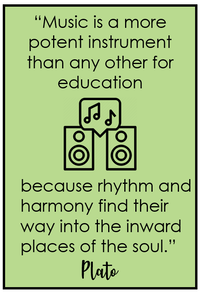
Mastery in Music lessons
Charanga Musical School Units of Work enable children to understand musical concepts through a repetition-based approach to learning. Learning about the same musical concept through different musical activities enables a more secure, deeper learning and mastery of musical skills.
Musical teaching and learning is not neat or linear. The strands of musical learning, presented within the lesson plans and the on-screen resources, are part of the learning spiral. Over time, children can both develop new musical skills and concepts, and re-visit established musical skills and concepts. Repeating a musical skill doesn’t necessarily mean their progress is slowing down or their development is moving backwards! It's just shifting within the spiral. Mastery means both a deeper understanding of musical skills and concepts and learning something new.
Charanga Musical School Units of Work enable children to understand musical concepts through a repetition-based approach to learning. Learning about the same musical concept through different musical activities enables a more secure, deeper learning and mastery of musical skills.
Musical teaching and learning is not neat or linear. The strands of musical learning, presented within the lesson plans and the on-screen resources, are part of the learning spiral. Over time, children can both develop new musical skills and concepts, and re-visit established musical skills and concepts. Repeating a musical skill doesn’t necessarily mean their progress is slowing down or their development is moving backwards! It's just shifting within the spiral. Mastery means both a deeper understanding of musical skills and concepts and learning something new.
IMPLEMENTATION – Music Planning & Sequencing of Knowledge & Skills:
To find out how Music is planned & sequenced in order that our children can progress through the building blocks for learning, please click below:
|
| ||||||||||||
Musical Progression from the EYFS-Y4
| EYFS | |
| File Size: | 170 kb |
| File Type: | |
| Year 1 | |
| File Size: | 91 kb |
| File Type: | |
| Year 2 | |
| File Size: | 112 kb |
| File Type: | |
|
Singing in Year 3 - Warming up our voices to sing.
|
|
Singing in Year 3 - Three Little Birds, written by Bob Marley and the Wailers.
|
|
Playing the glockenspiels to Three Little Birds.
|
|
Creating our own compositions in Year 3.
|
|
| |||||||
| Year 4 | |
| File Size: | 350 kb |
| File Type: | |
|
Guitar lessons in Year 5
In Year 5 the children have guitar lessons with Mr Butcher, through Suffolk County Music Services. During these lessons the children learn to: Listen, reflect and appraise their music. Sing and play. Explore and compose their work. Perform. The children work on rhythms and pulse, learn about notations, play and compose. They also get the opportunity to perform to each other as a half a class, smaller group, or even solo. |
|
Performance and solo opportunities in year 5
Working with Mr Butcher, The children get to create their own compositions and get the opportunity to play in front of the rest of the group. |
|
|
In guitars, the Year 5s are learning to play and sing.
|
|
|
|
Guitar lessons in Year 6
In Year 6 the children have guitar lessons with Mr Butcher, through Suffolk County Music Services. During these lessons the children learn to: Listen, reflect and appraise their music. Sing and play. Explore and compose their work. Perform. The children work on rhythms and pulse, learn about notations, play and compose. They also get the opportunity to perform to each other as a half a class, smaller group, or even solo. |
Music Policy
| music_policy_2022.pdf | |
| File Size: | 486 kb |
| File Type: | |
Singing assemblies
Music-Share events
Every half-term the children share their music learning in a whole-school music-share assembly. Such a wonderful celebration of music and a great performance opportunity for the children. Then children show-case a variety of music, from recorders to glockenspiels, to guitars and singing.
|
|
|
Extra-curricular
Our School Choir
We have an after-school, Key Stage 2 Choir at TSM that have a number of events scheduled in the local community. For such a small school, we have had an astonishing number of children enroll and are having great fun learning the technique for singing, projection, balance, intonation and dynamics. Most importantly, we are having lots of fun of we are prepare for our events.
We have an after-school, Key Stage 2 Choir at TSM that have a number of events scheduled in the local community. For such a small school, we have had an astonishing number of children enroll and are having great fun learning the technique for singing, projection, balance, intonation and dynamics. Most importantly, we are having lots of fun of we are prepare for our events.
DRama Club
Mrs Cockerill wrote a play for Key Stage 2 to perform at Christmas. It was based on Christmas specials. A drama club was set up and the children worked with Mrs Cockerill to project their voices and be more confident. In singing assemblies the children learnt the songs for the play. The two combined to make a super play that was loved by both the children and the parents.
Reception and Key Stage 1 Play
Key Stage 2 Concert
Year 6 Play
|
|
Year 5 whole class singing
A shortened version of We're Walking In The Air as a celebration of Christmas. The Calypso Carol in celebration of Christmas. |
|
|
The Queen's Platinum Jubilee
This was celebrated as a whole school by singing Gary Barlow's Sing. This song was originally written for the Queen's Diamond Jubilee Celebrations and seemed fitting to sing this at the Platinum Jubilee. The children also sang The White Cliffs of Dover, one of the Queen's favourite songs and the National Anthem. |
|

